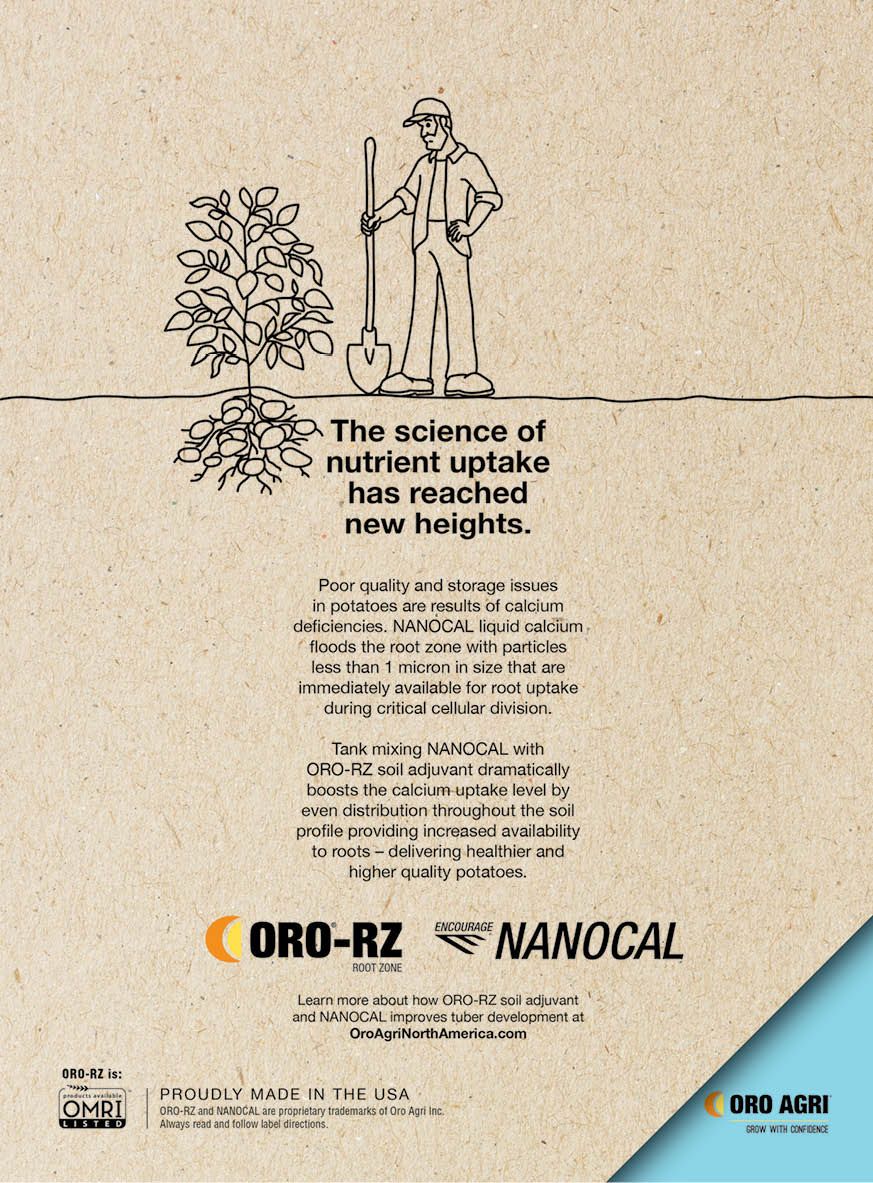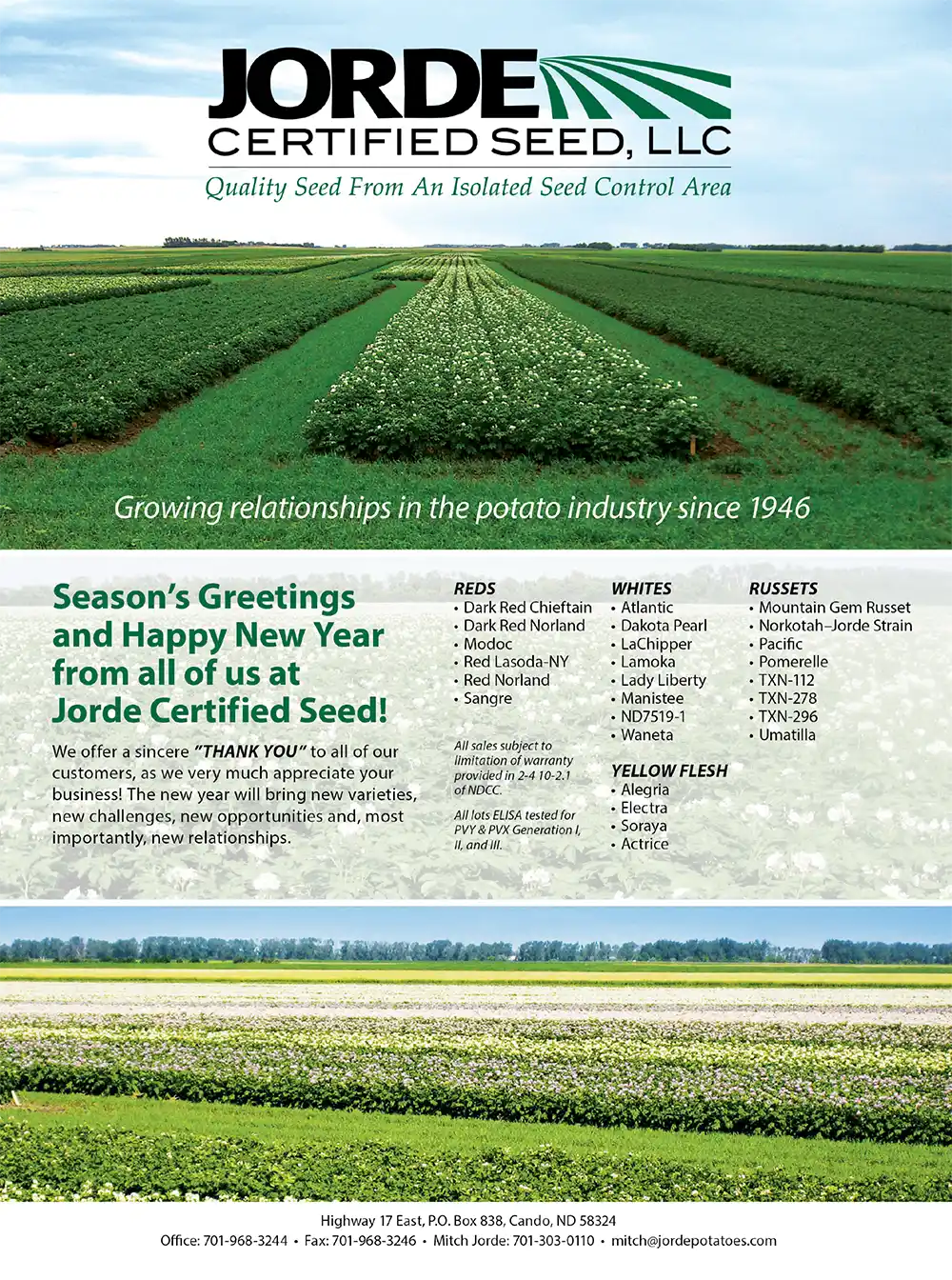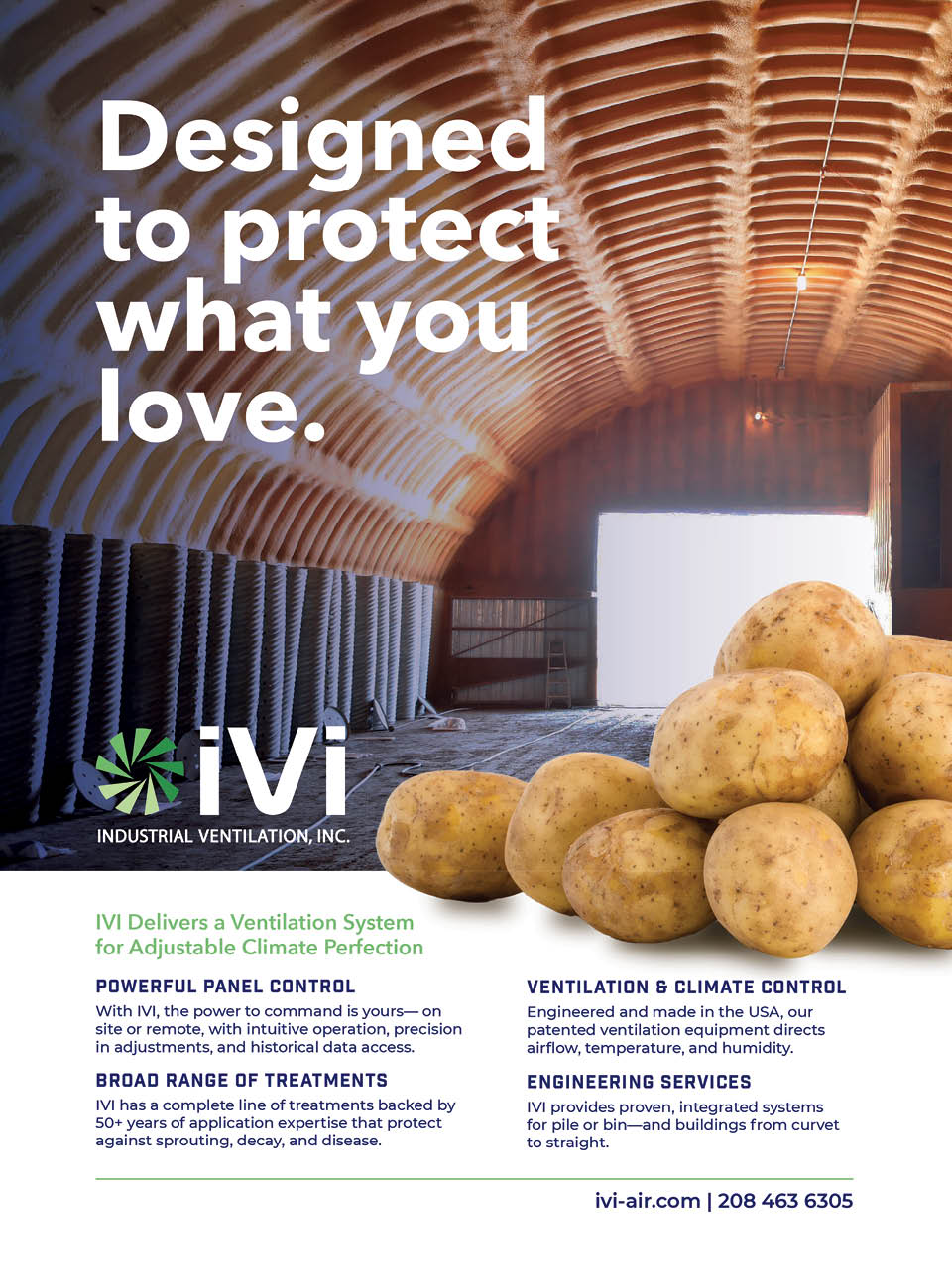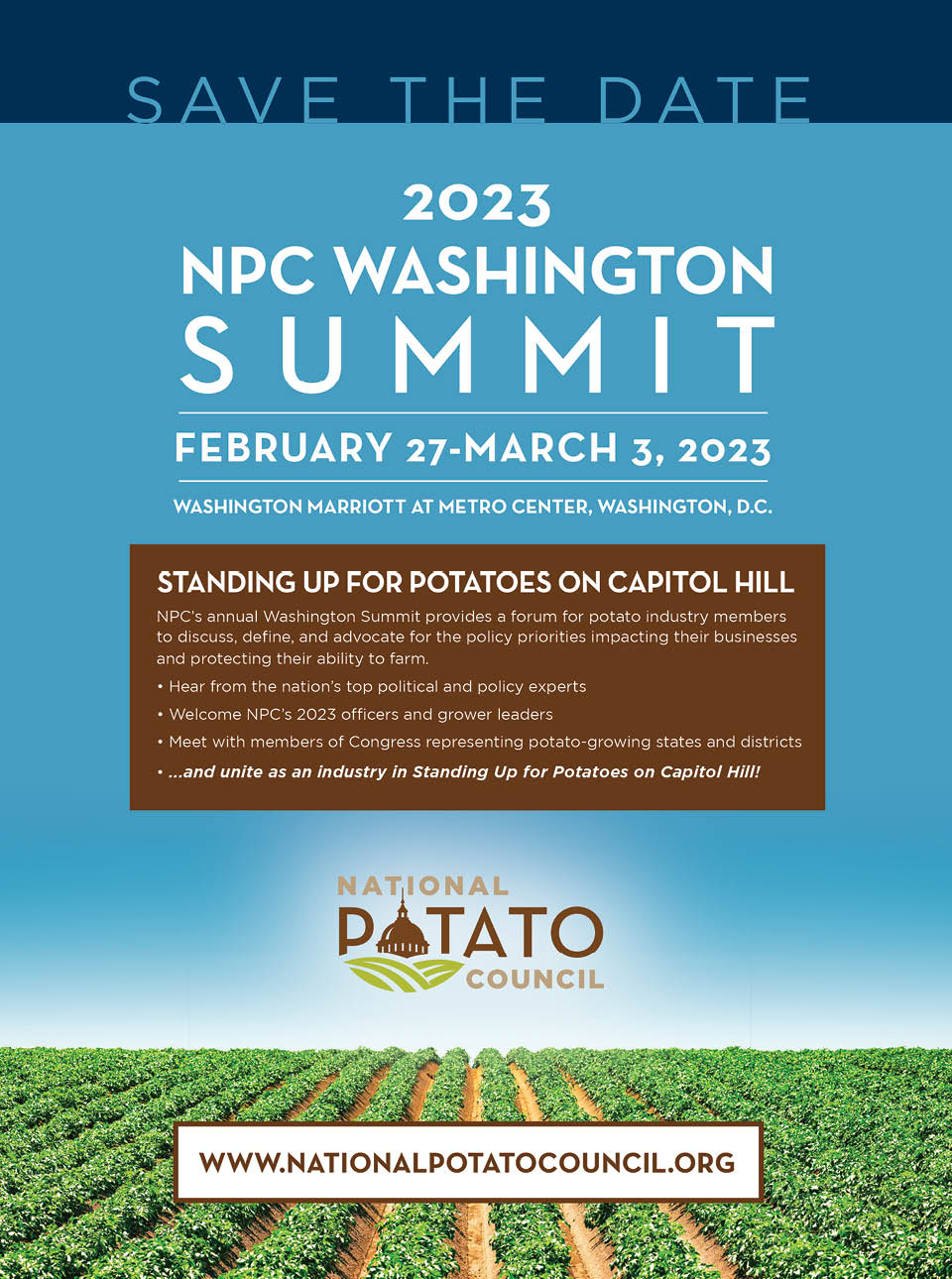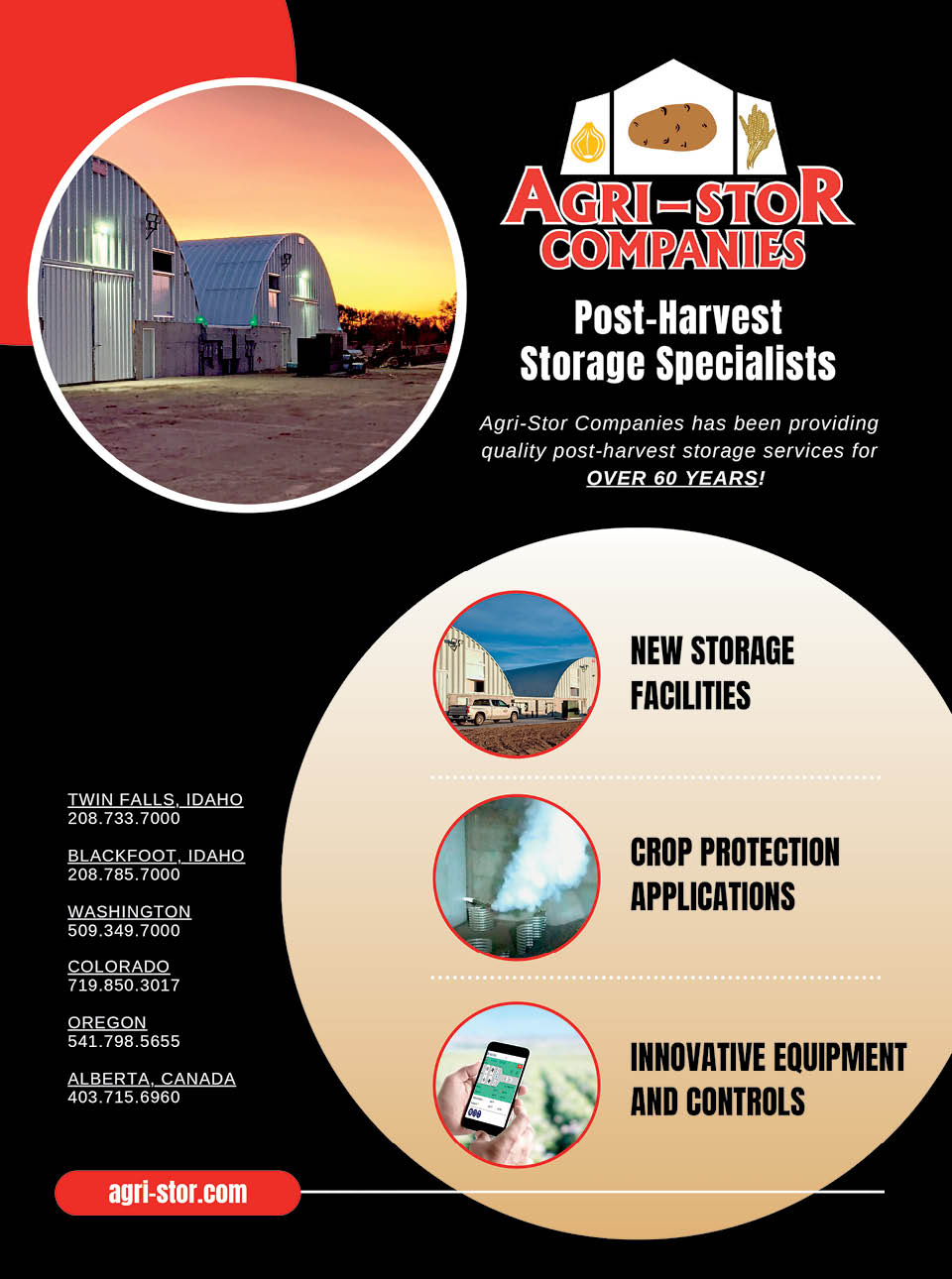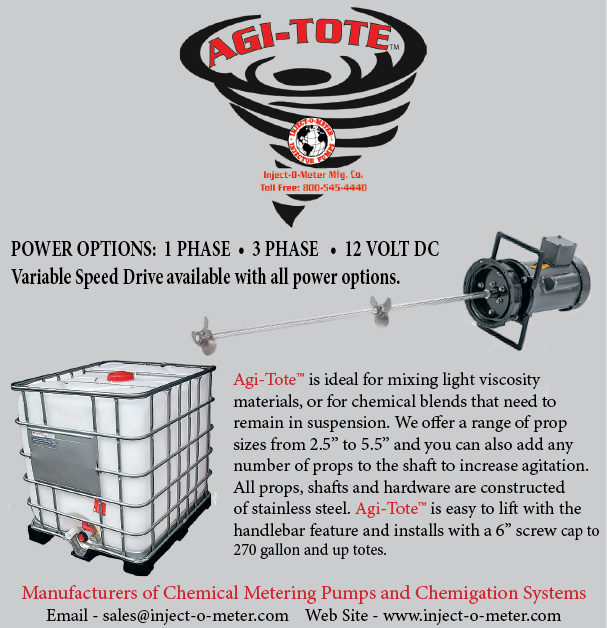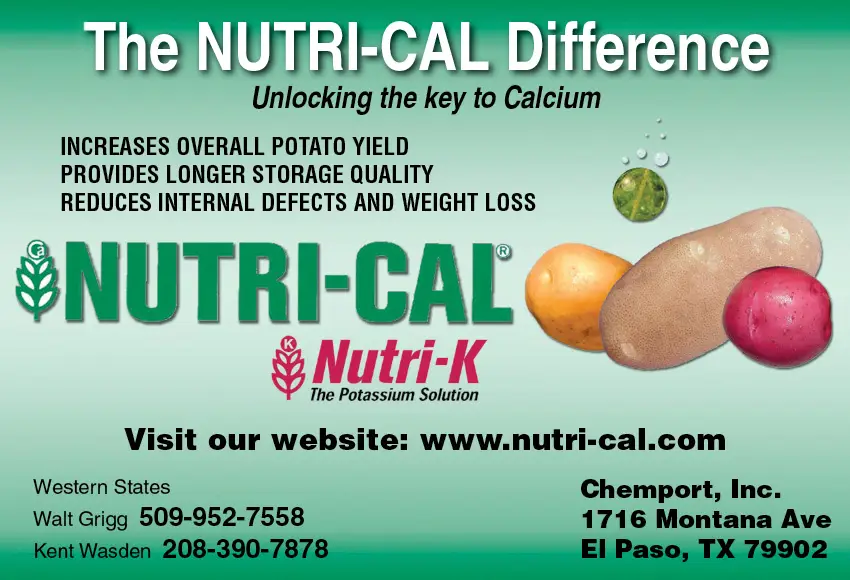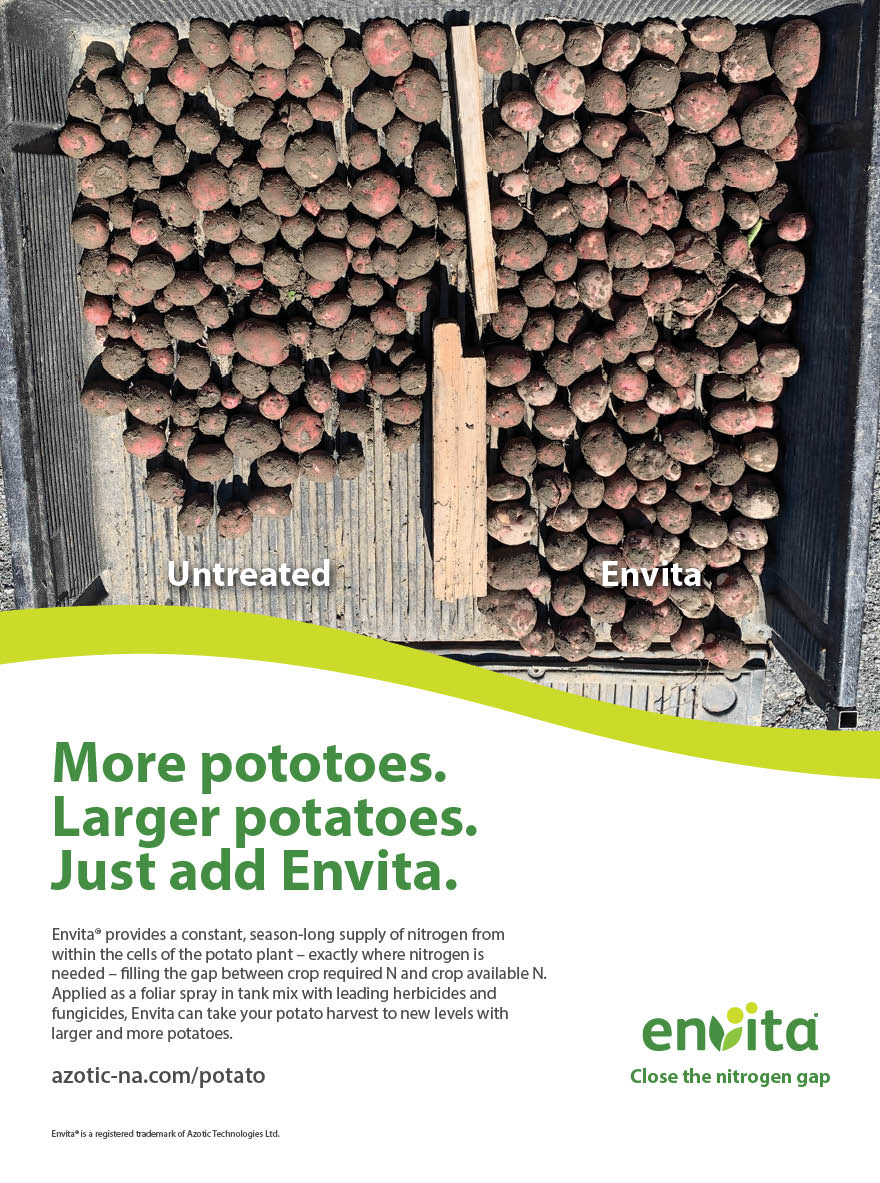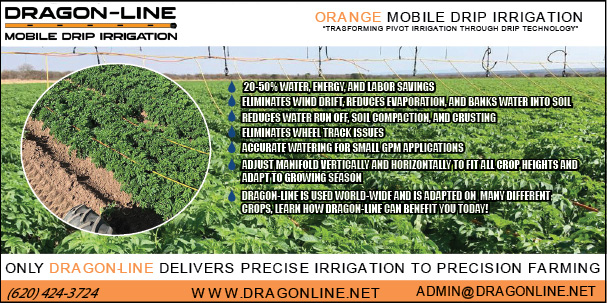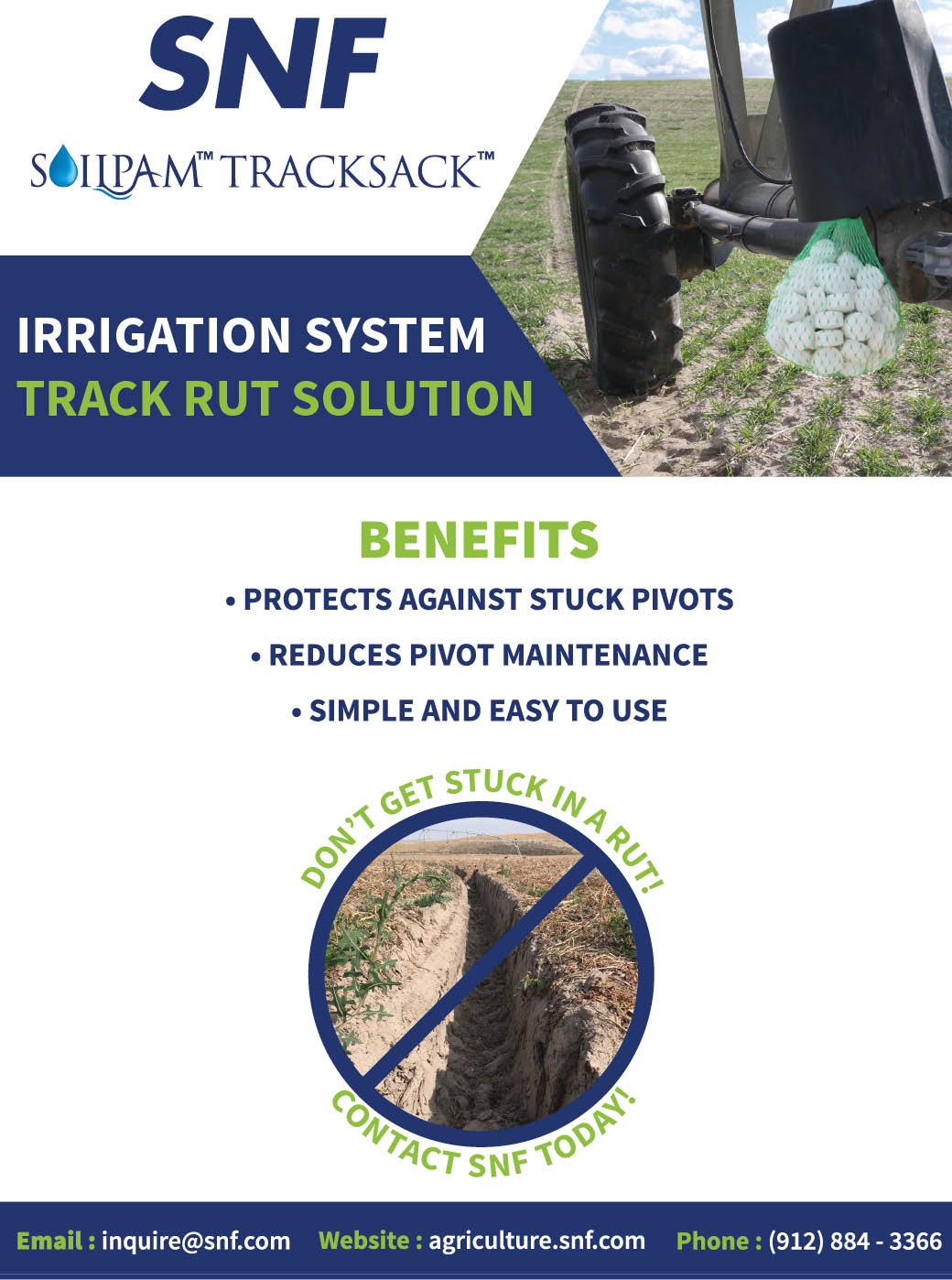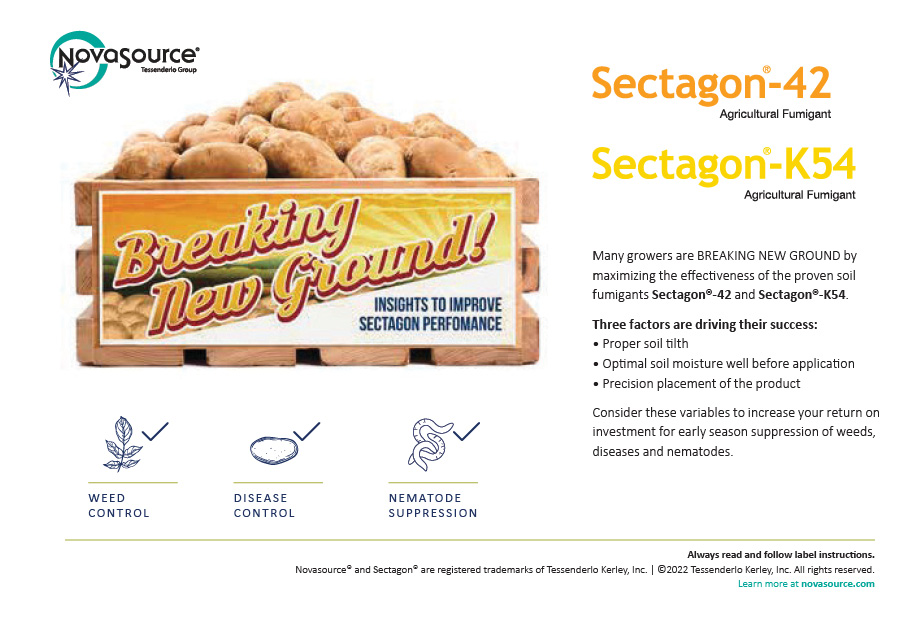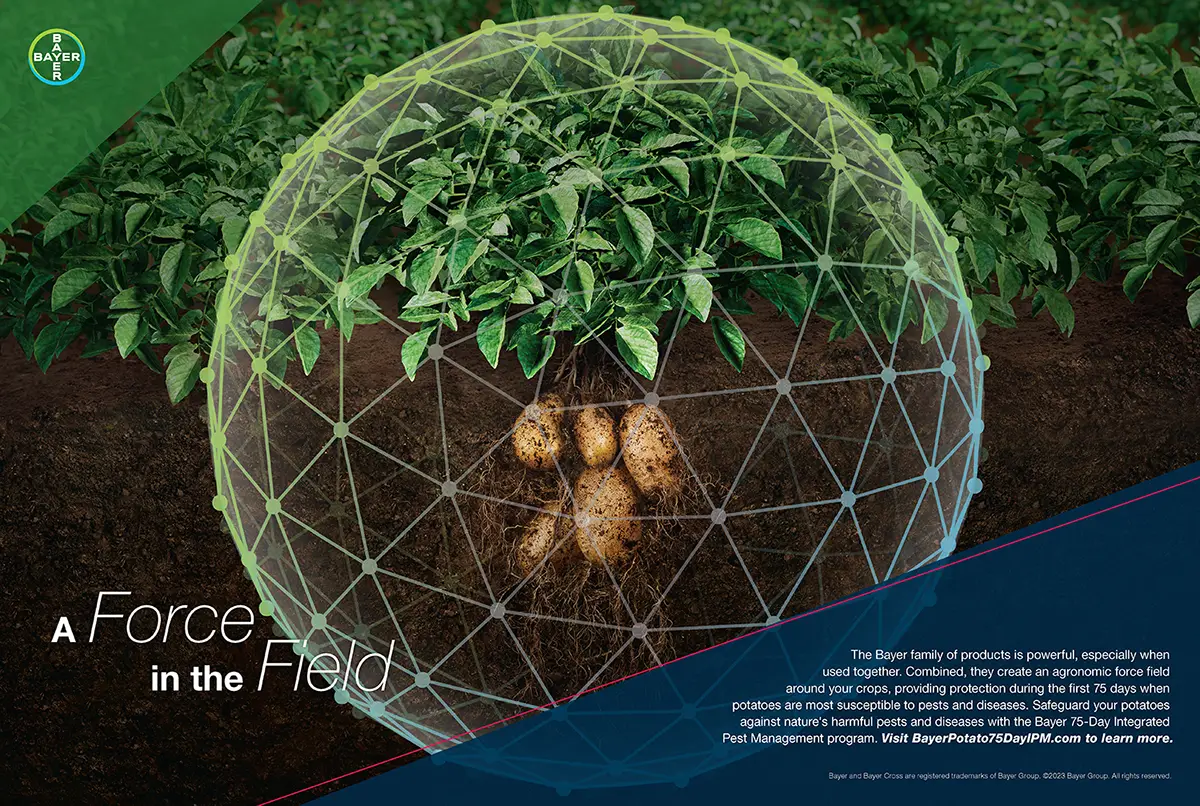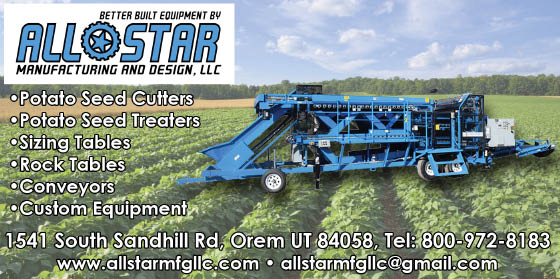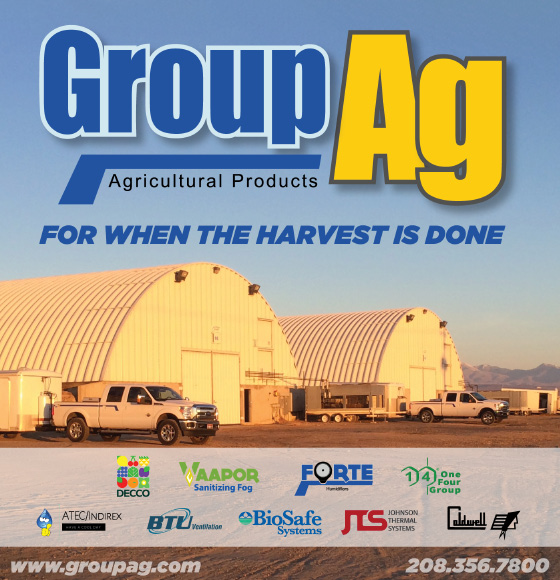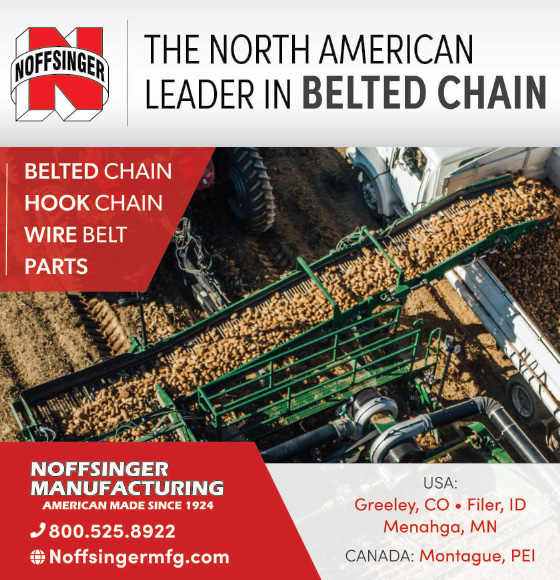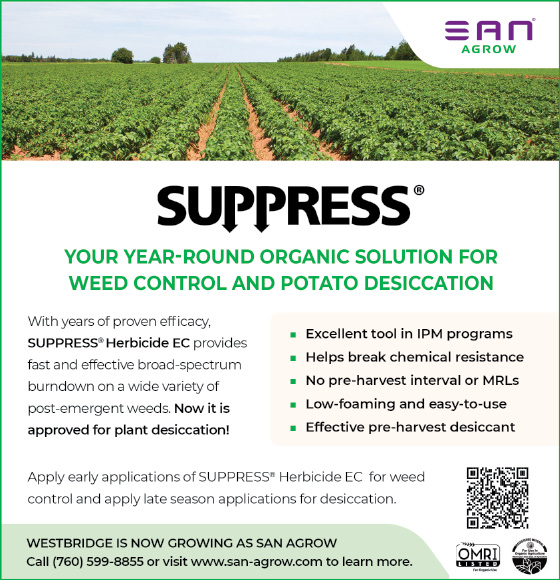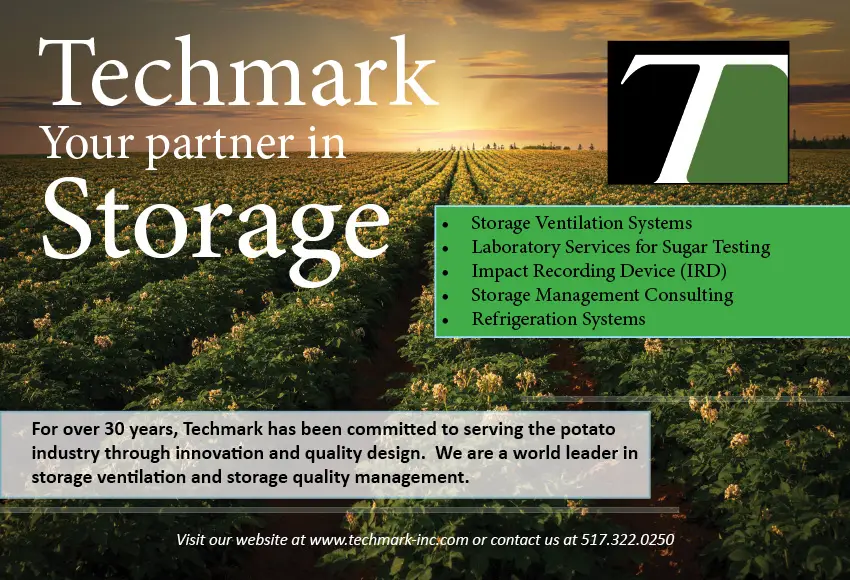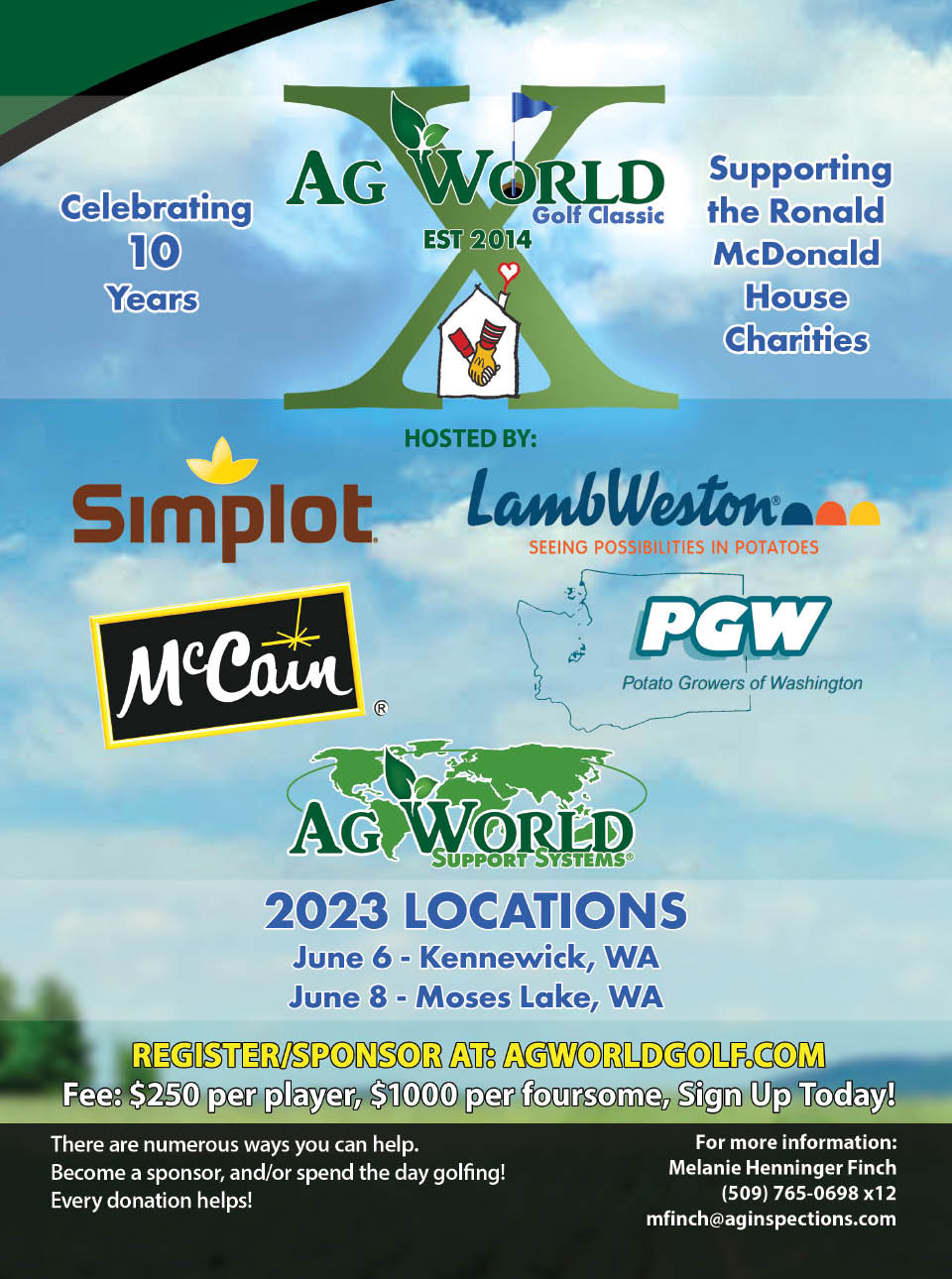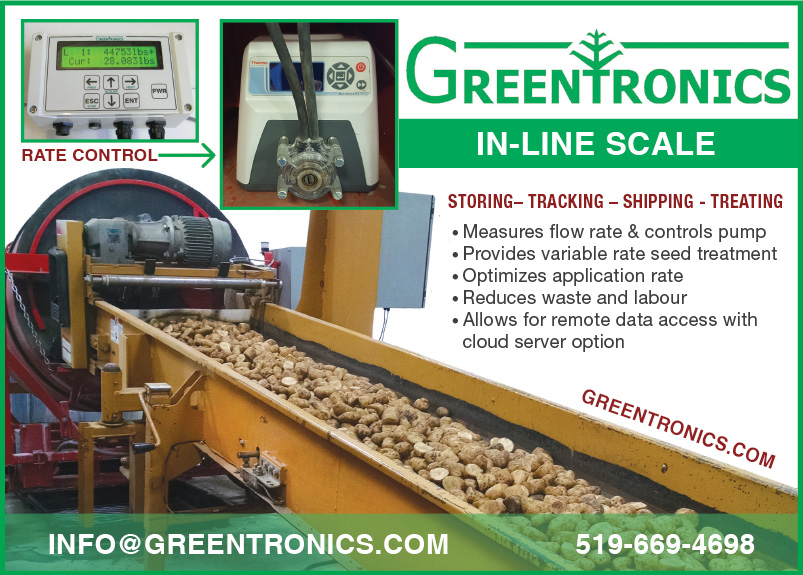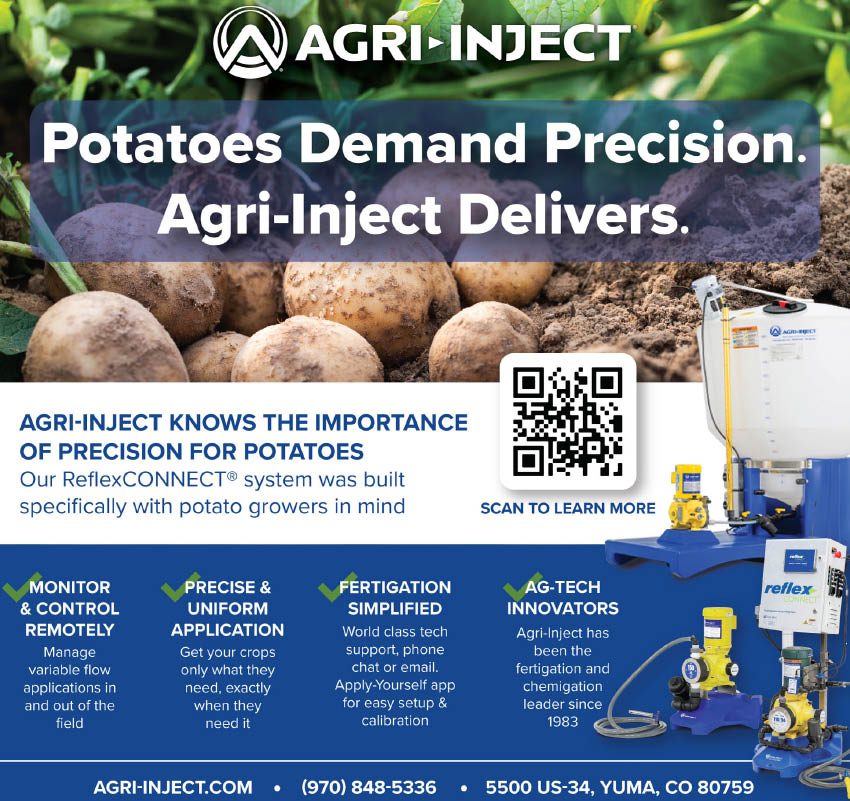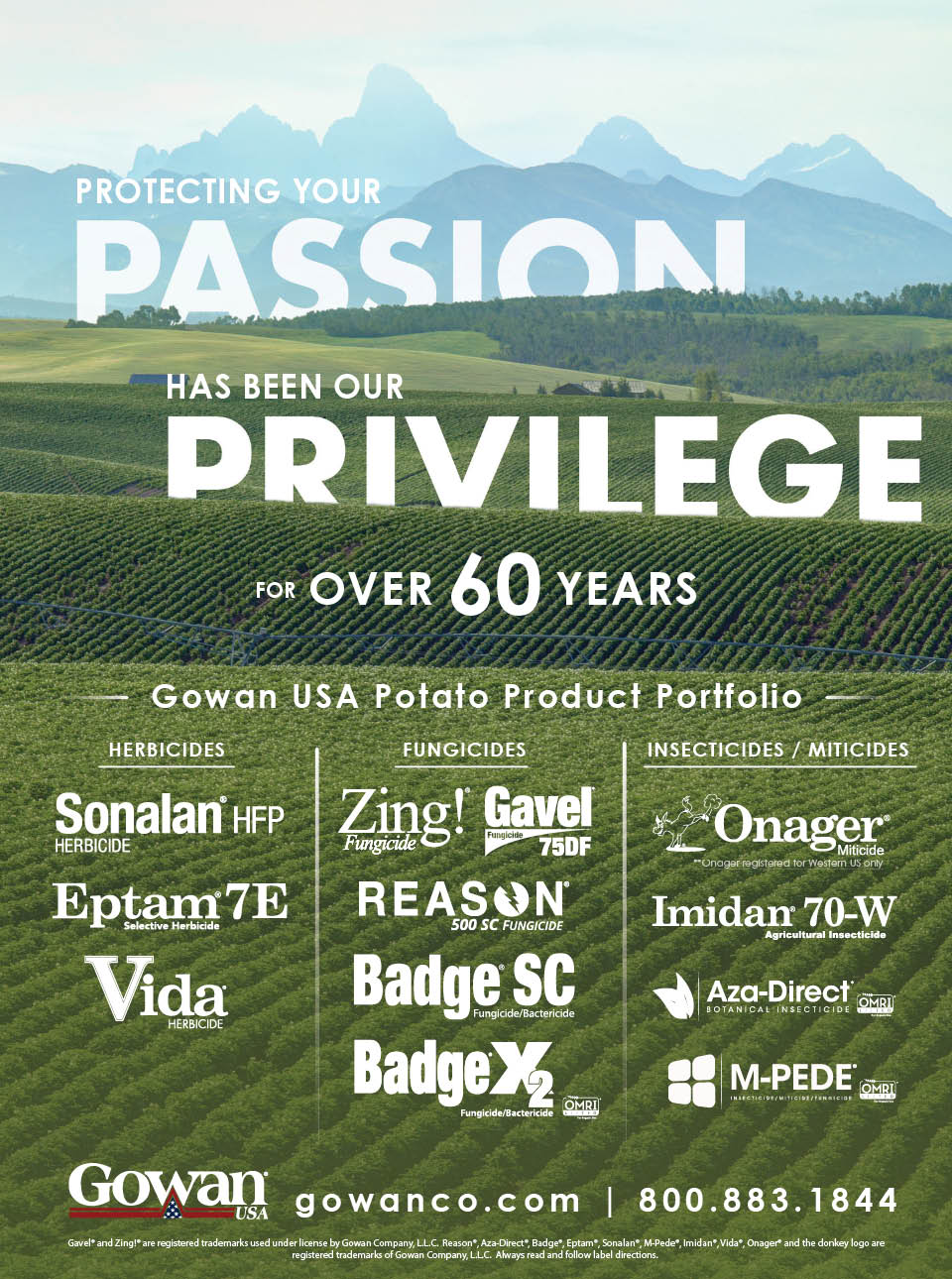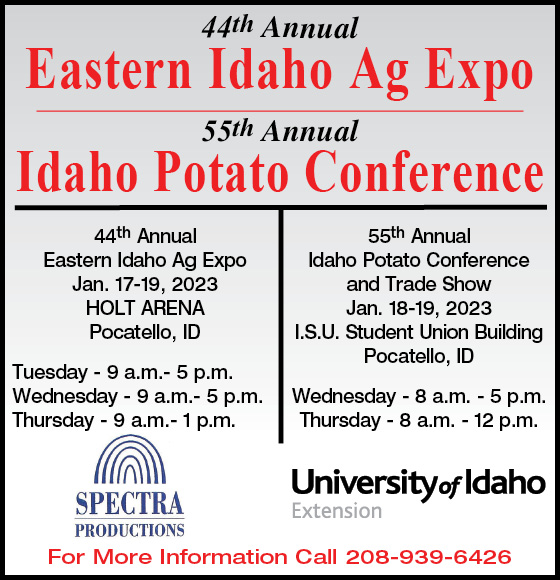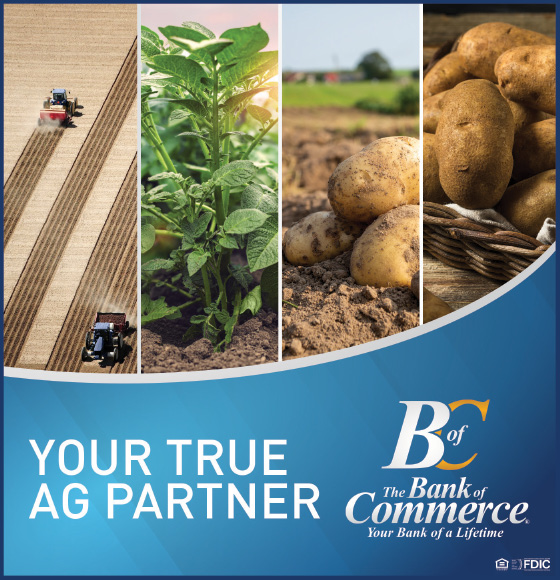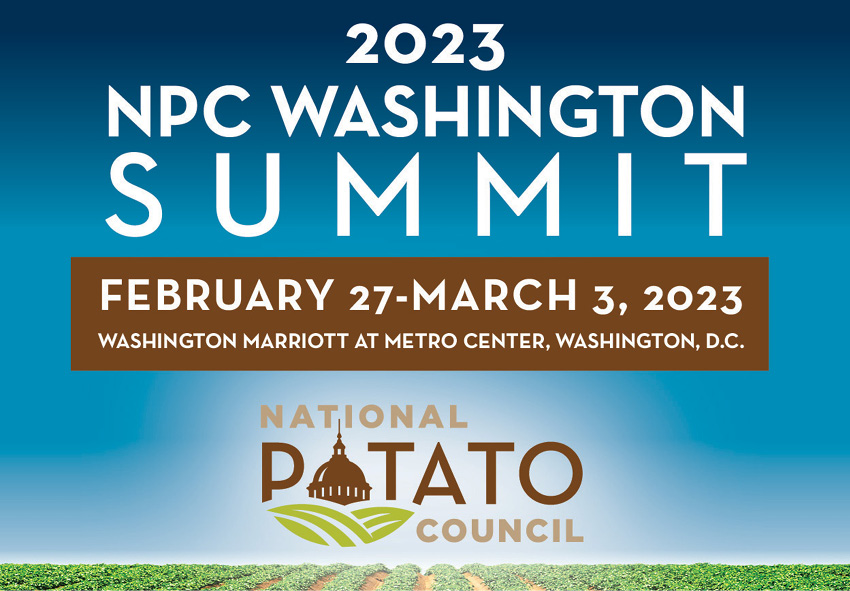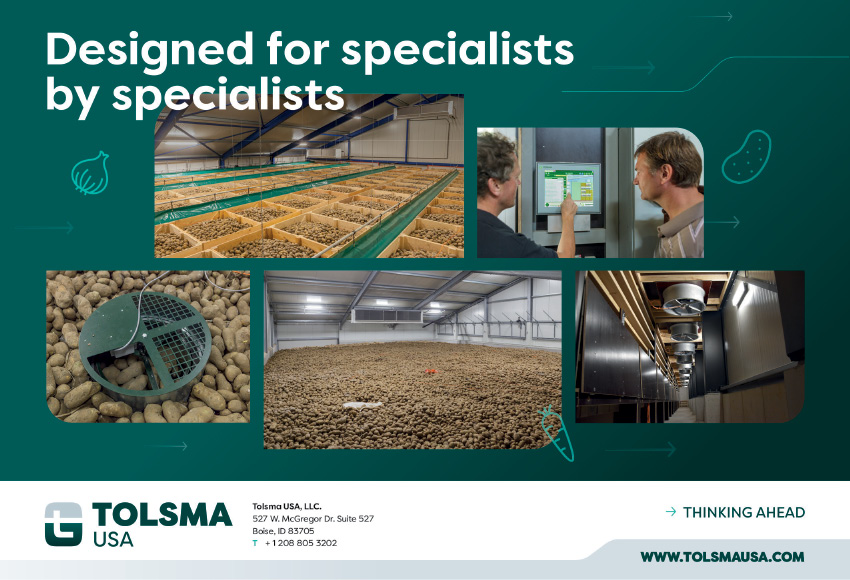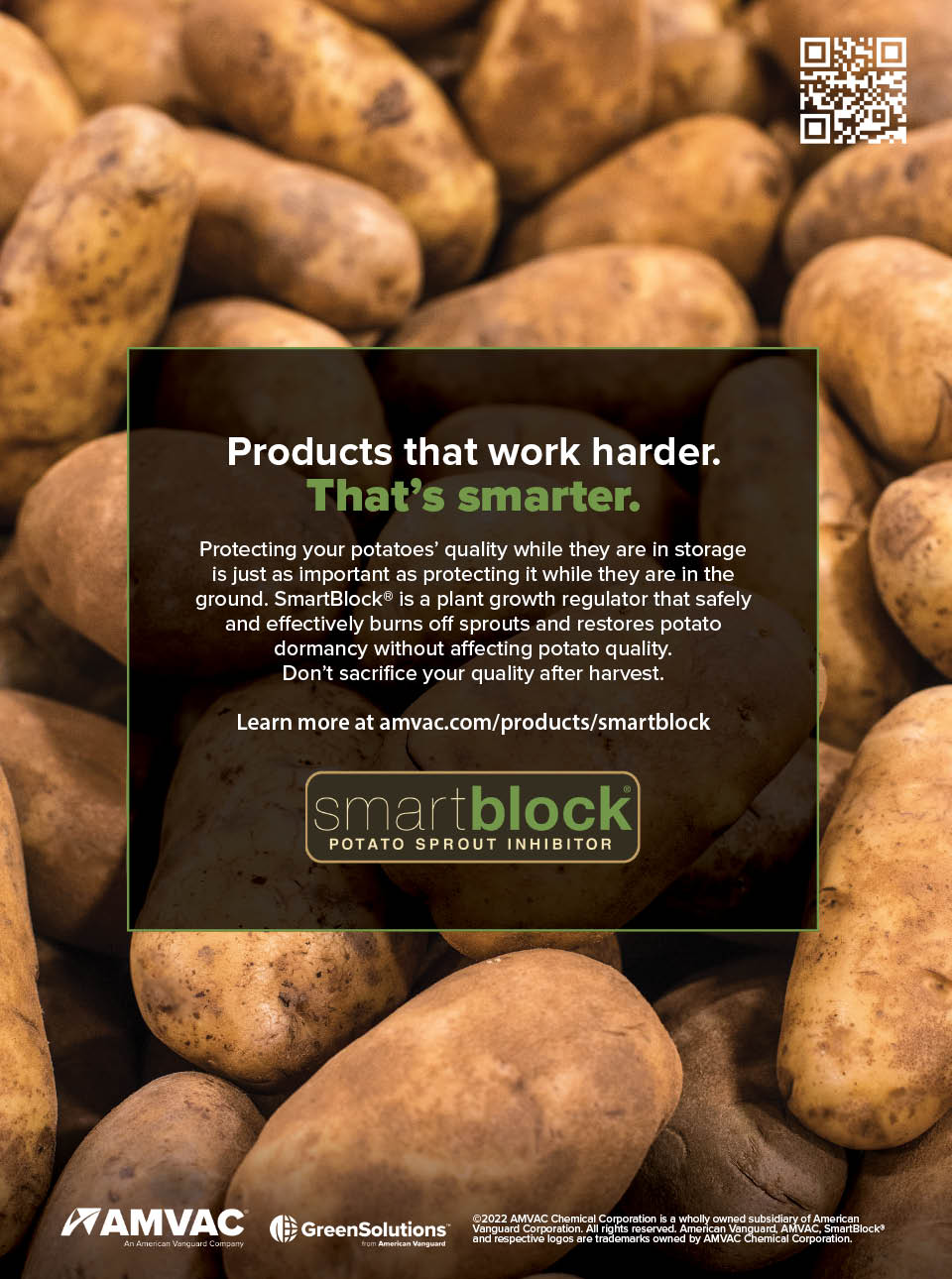

University of Idaho researchers are studying which seed potato size is best for a handful of varieties, including the Clearwater Russet
The Big Idaho Potato Harvest Meeting revealed the state of the industry in Idaho and beyond
Research being done at North Dakota State is looking at the ideal dates for planting to help bulking while reducing disease stress for three russet varieties
This is a must-attend event for the entire potato industry
The Potato Association of America is all about potato research and includes researchers from not only the United States but also from several other countries
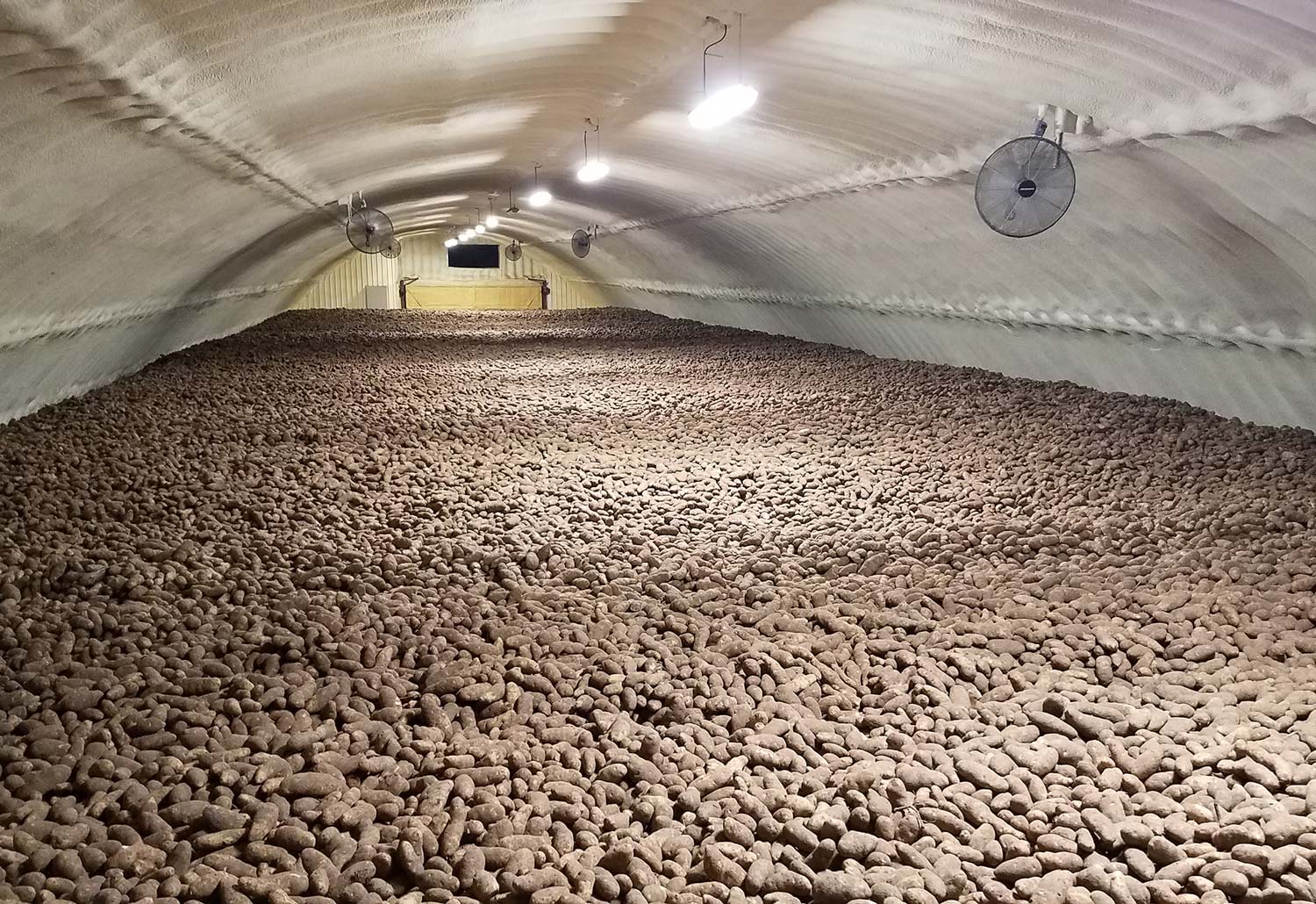

Subscriptions:
U.S. and Possessions $24.00 per year, International $120.00 per year. To subscribe call (800) 638-0135
Copyright 2023
Harris Publishing Inc.
All rights reserved.
Reproduction in whole or in part without permission is prohibited. Back issues available at $5 per copy. Limited quantities. Publisher not responsible for content of materials submitted.
Jason Harris
Vice President
Chuck Harris
Vice President
Ryan Harris
Treasurer
Clayton Ward
Secretary
Janet Chase
Canadian Publisher’s
Agreement No. 40606038,
Customer No. 7004671.
Mailed under a standard rate
mailing permit at Idaho Falls,
Idaho, and at additional
mailing offices.
Also Publishers of
Sugar Producer
Darryl Harris
Corporate Offices:
HARRIS PUBLISHING INC.
520 Park Avenue
Idaho Falls, ID 83402
(208) 524-7000
Fax (208) 522-5241
www.potatogrower.com

Publisher
Jason Harris
Editor
Lane Lindstrom
lane@potatogrower.com
Advertising Director
Rob Erickson
rob.erickson@potatogrower.com
Account Executive
Kevin Malcom
kevin@potatogrower.com
Group Secretary
Shantelle Stewart
Production
Siera Trujillo
Graphic Artists
Janet Chase
Lavon Horne
Circulation
Chuck Harris
IT Department
Chuck Harris
Accounting
Clayton Ward
(202) 682-9456
www.nationalpotatocouncil.org
POTATOES USA
(303) 369-7783
www.potatoesusa.com
UNITED POTATO GROWERS OF AMERICA
(801) 266-5050
www.unitedpotatousa.com
ALLIANCE FOR POTATO RESEARCH & EDUCATION
www.apre.org
POTATO ASSOCIATION OF AMERICA
(734) 239-8022
www.potatoassociation.org
INTERNATIONAL POTATO CENTER
www.cipotato.org
Potato Expo 2023
Gaylord Rockies
Aurora, CO
www.potato-expo.com
Jan. 4-6
Dakota Farm Show
University of South Dakota DakotaDome
Vermillion, SD
www.dakotafarmshow.com
Jan. 6-11
American Farm Bureau Convention
San Juan, Puerto Rico
www.fb.org
January 10-11
Maine Potato Summit
Northern Maine Community College
Presque Isle, ME
Mainepotatoes.com
Jan. 18-19
Idaho Potato Conference
Idaho State University
Pocatello, ID
www.uidaho.edu/cals/potatoes
Jan. 24-26
Washington-Oregon Potato Conference
Three Rivers Convention Center
Kennewick, WA
www.potatoes.com/potatoconference
Feb. 1-3
Michigan Winter Potato Conference
Amway Grand Plaza
Grand Rapids, MI
www.mipotatoindustry.com
Feb. 7-9
Wisconsin Grower Education Conference & Industry Show
Holiday Inn Hotel & Convention Center
Stevens Point, WI
www.wisconsinpotatoes.com
Feb. 14-16
World Ag Expo
International Agri-Center
Tulare, CA
www.worldagexpo.com
Miller Research Potato Pest Management Seminar
Historic Wilson Theater
Rupert, ID
Millerresearch.com
Feb. 15-18
National Farm Machinery Show
Kentucky Exposition Center
Louisville, KY
www.farmmachineryshow.org
Feb. 22-23
International Crop Expo
Alerus Center
Grand Forks, ND
www.cropexpo.com
Feb. 22-23
Northland Potato Growers Association Research Reporting Conference & Annual Meeting
Alerus Center
Grand Forks, ND
www.nppga.org
Feb. 23-24
Agricultural Outlook Forum
Crystal City Gateway Marriott
Arlington, VA
www.usda.gov/oce/ag-outlook-forum
Feb. 27-March 3
NPC Washington Summit
Marriott Metro Center
Washington, DC
www.nationalpotatocouncil.org
March 19-21
SNAXPO
Gaylord Palms Resort & Convention Center
Orlando, FL
www.snaxpo.com
March 28-30
61st WPS Farm Show
Experimental Aircraft Association Grounds
Oshkosh, WI
Wisconsinpublicservice.com/partners/agriculture/farm-show/
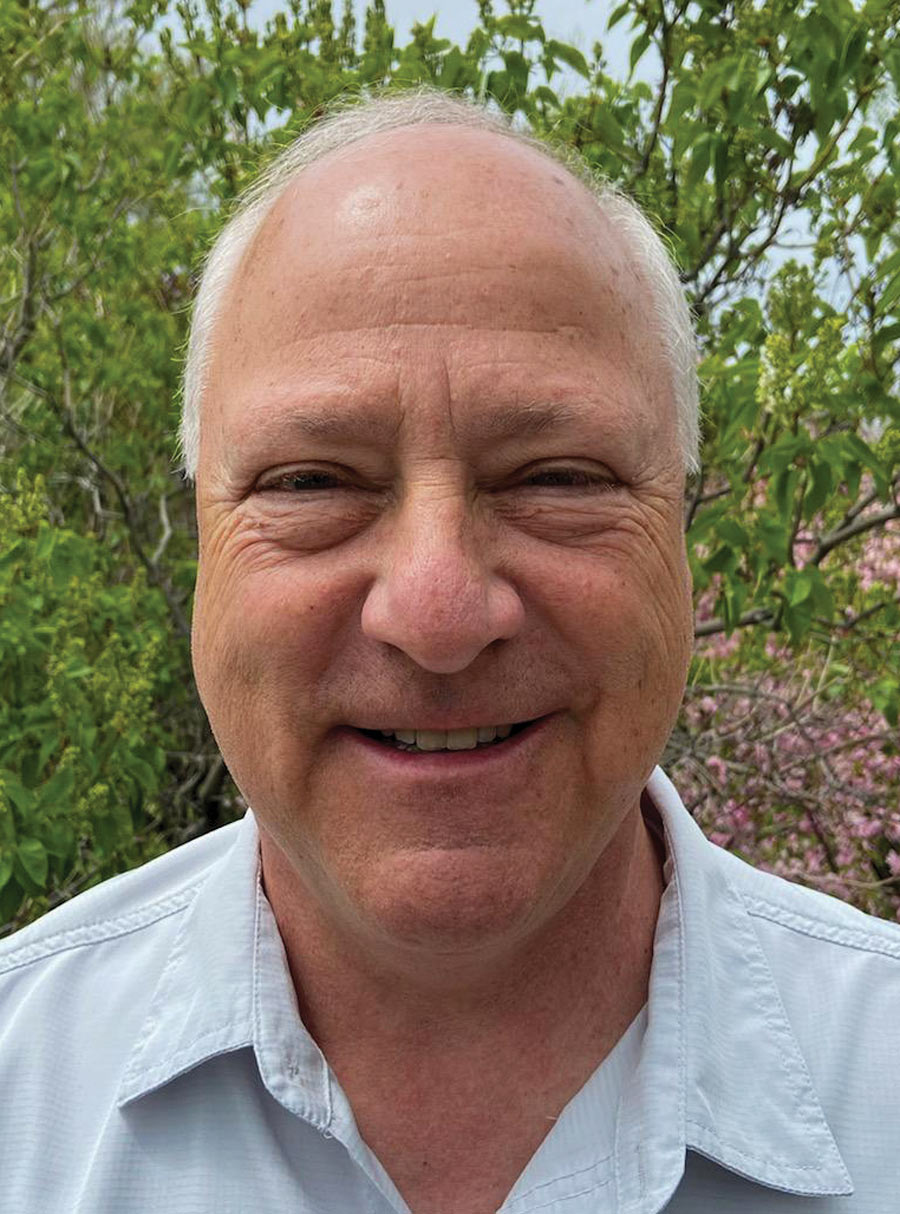
The Next Evolution Of Potato Grower Magazine
I love comfort food, you know, like mashed potatoes and gravy. I have nothing against all the seemingly dozens of new potato recipes I see every week; I just love mashed potatoes and gravy.
I still prefer to take notes with a pen and paper. Yes, that is old-fashioned, but I trust my own writing more than a portable recording device or most other newer versions of recording events, words and images, such as a cell phone. I will admit I am using my cell phone more and more to record things but I still take notes as well.

NETZSCH Announces New TORNADO T1 Rotary Lobe Pump
NETZSCH Pumps North America is offering the new TORNADO T1 pump, designed to produce high flow at low to medium pressures in a small compact package. It is ideal for industrial applications. The TORNADO T1 pump can handle a wide range of viscosities, solids, temperature, abrasion, and corrosive/acidic process fluids and environments.
The TORNADO T1 pump is extremely versatile for just about any orientation and installation. Its robust design offers longevity, operational flexibility, and dry-run capabilities. It allows the pump to operate and handle many upset process conditions without causing harm to the pump. The pumps are available up to over 4000 gpm and up to 130 psi.
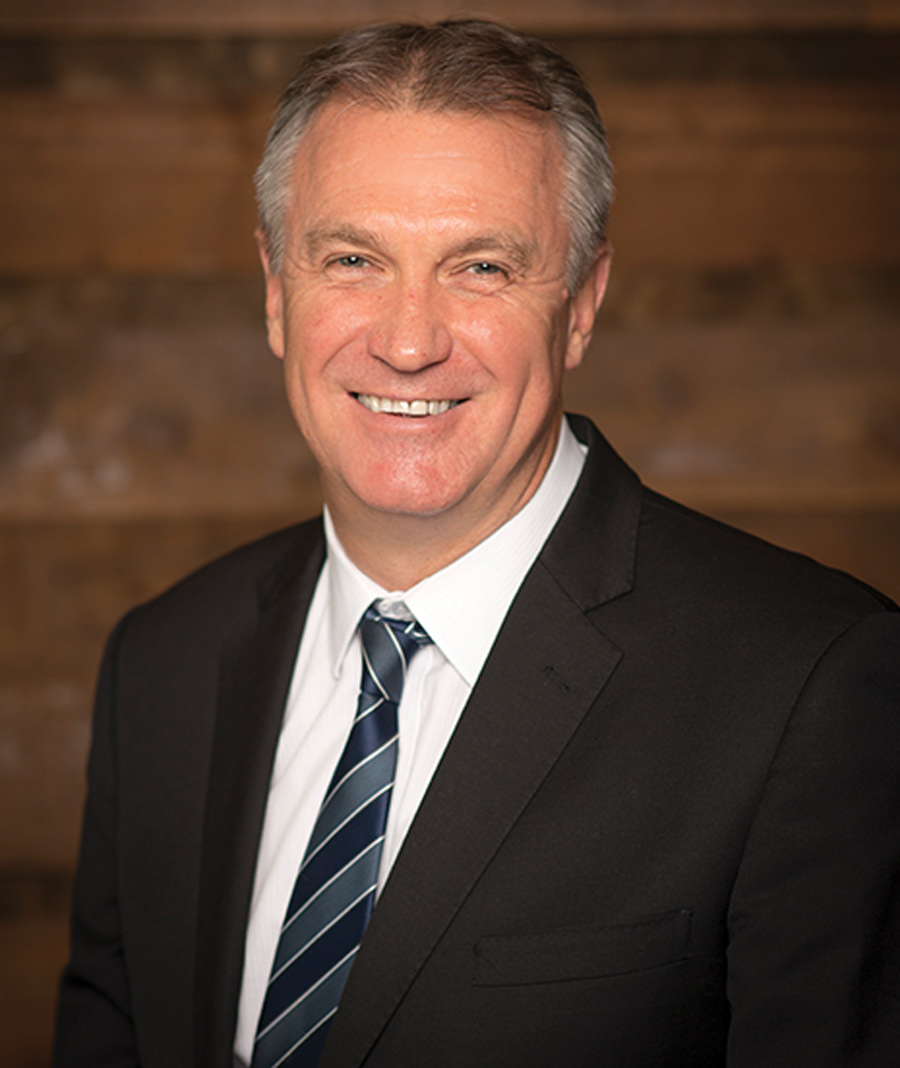
Simplot Selects Dugdale To Lead New Global Food Effort
The J.R. Simplot Company has named Graham Dugdale president of its newly formed Global Foods business group. Dugdale previously led Simplot Australia and will now assume the role of merging that business group with Simplot International Food Group previously led by Mark McKellar, who is retiring later this year.
“With change comes opportunity, and we saw a unique opportunity to capitalize on a global structure that leverages the knowledge of our employees, the capabilities we have as an organization and, in particular, better aligns our global food manufacturing footprint,” said Garrett Lofto, Simplot president and CEO. “Graham is a strong, collaborative leader who has proven his value while leading our Simplot Australia division for several years and serving on our senior leadership team. His track record, strategic thinking and growth mindset make him the perfect choice to lead our employees and our global customer base into this exciting new phase.”



As research methods improve and become even more precise, the opportunities to find answers to what the ideal seed size is for planting and whether you should use cut or whole seed are becoming even more clear.
Well, for the most part. In a presentation at last summer’s Potato Association of America annual meeting in Missoula, MT, Hailey Hampton, a master’s research student at the University of Idaho offered some of the latest research on ideal seed size and type, with her research focused on specific potato varieties. Hampton also tied into her research the costs associated with using different seed sizes and whole vs. cut seed. That’s what we mean when we say research is getting more precise.
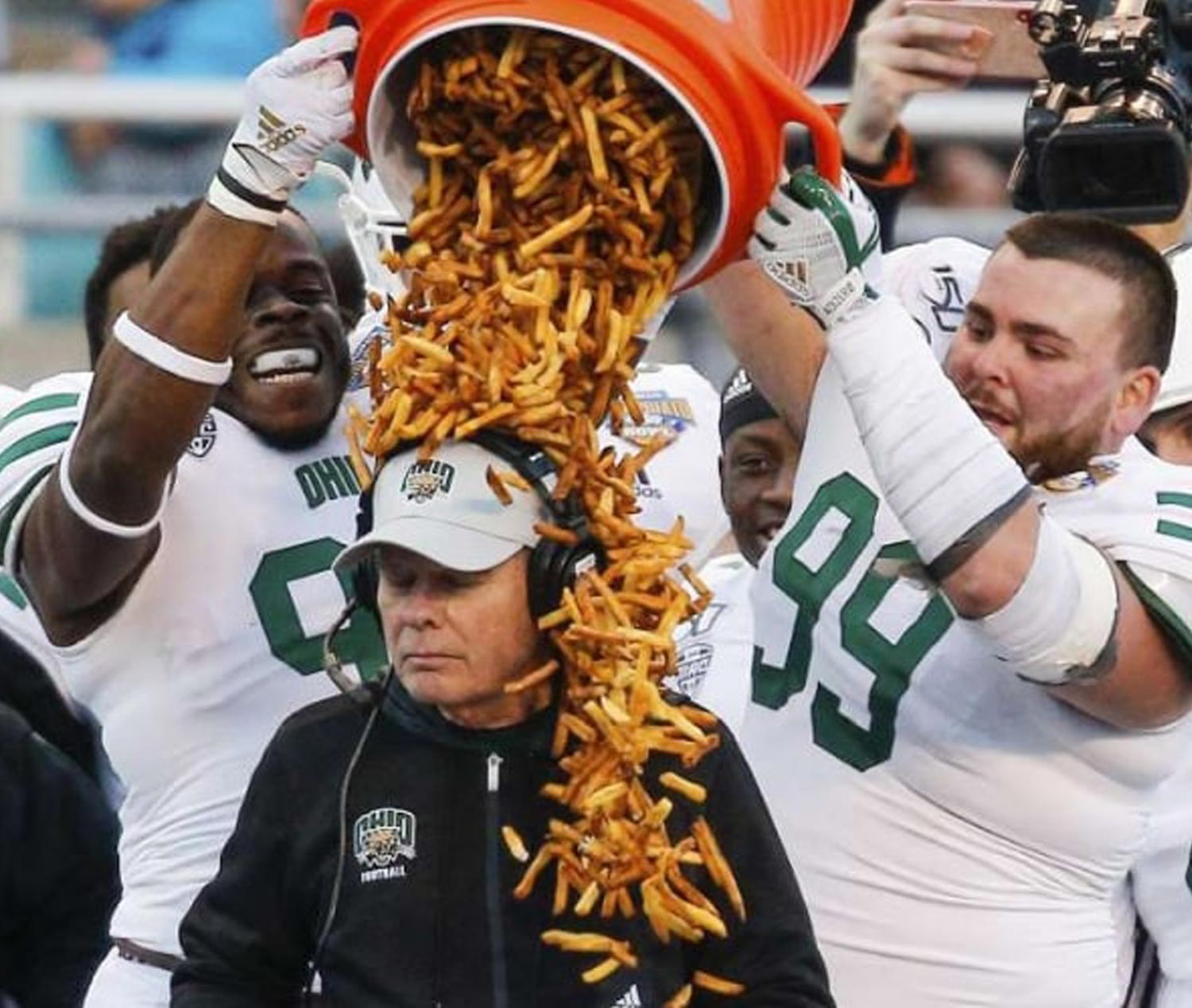
After two years of not being able to meet together in person, the Idaho Potato Commission’s annual The Big Idaho Potato Harvest Meeting took place in November with nearly 250 in attendance.
The Big Idaho Potato Harvest Meeting included an impressive lineup of industry experts who articulated a variety of topics from marketing to the state of the industry to research. While some of the meeting content was definitely focused on Idaho growers and the state on the industry in the Gem State, a good portion of the information presented pertains to the entire potato industry.
We’re focusing on a handful of speakers in this issue and will highlight the rest in our next issue. Yes, there was that much information.


Pretty simple concept, right?
Yes, but research currently taking place at North Dakota State University is trying to either reinforce that thinking or determine if there is a more optimal date for planting potatoes and the effect that date will have on bulking as well as disease control, specifically Verticillium dahliae.
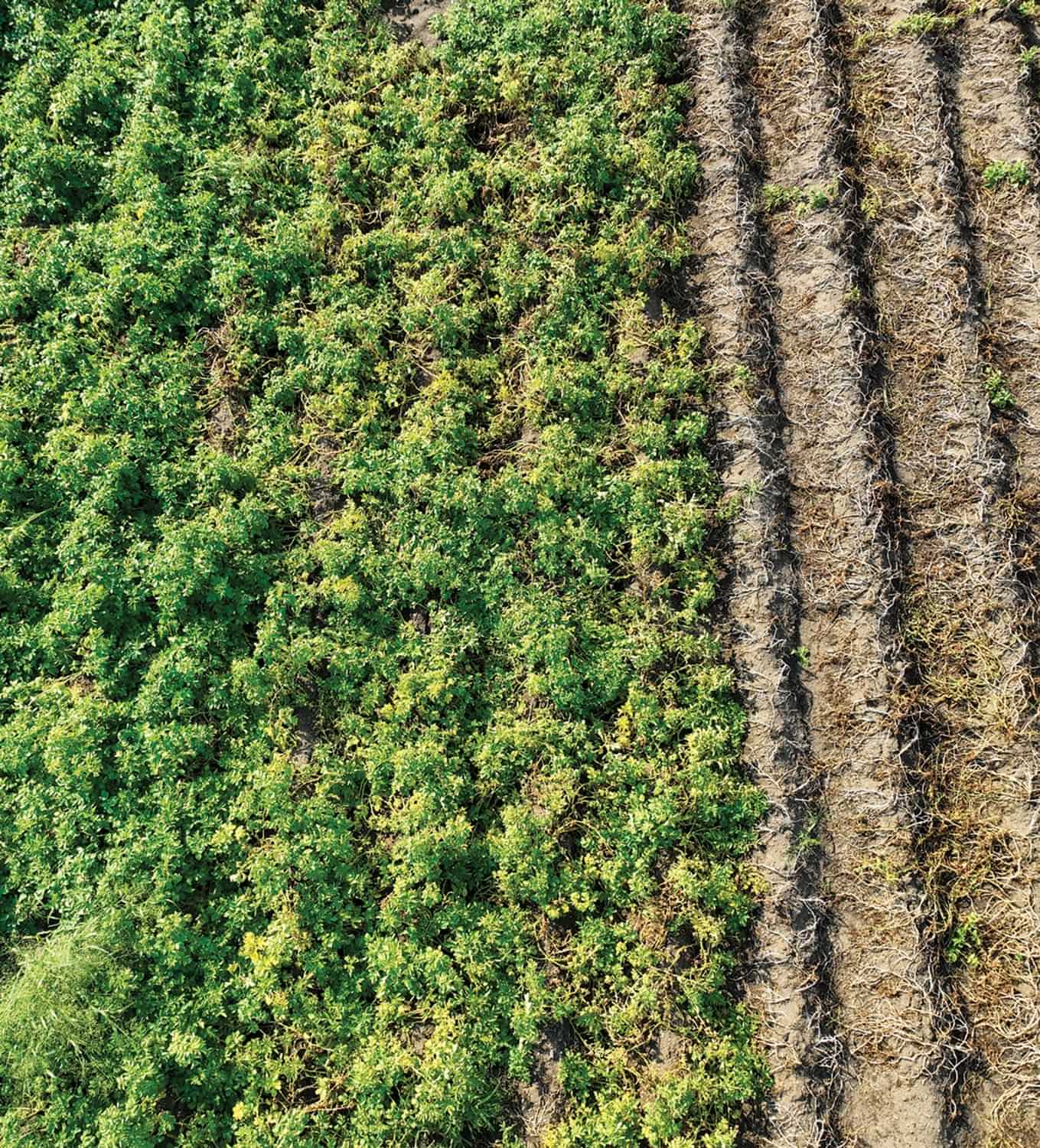
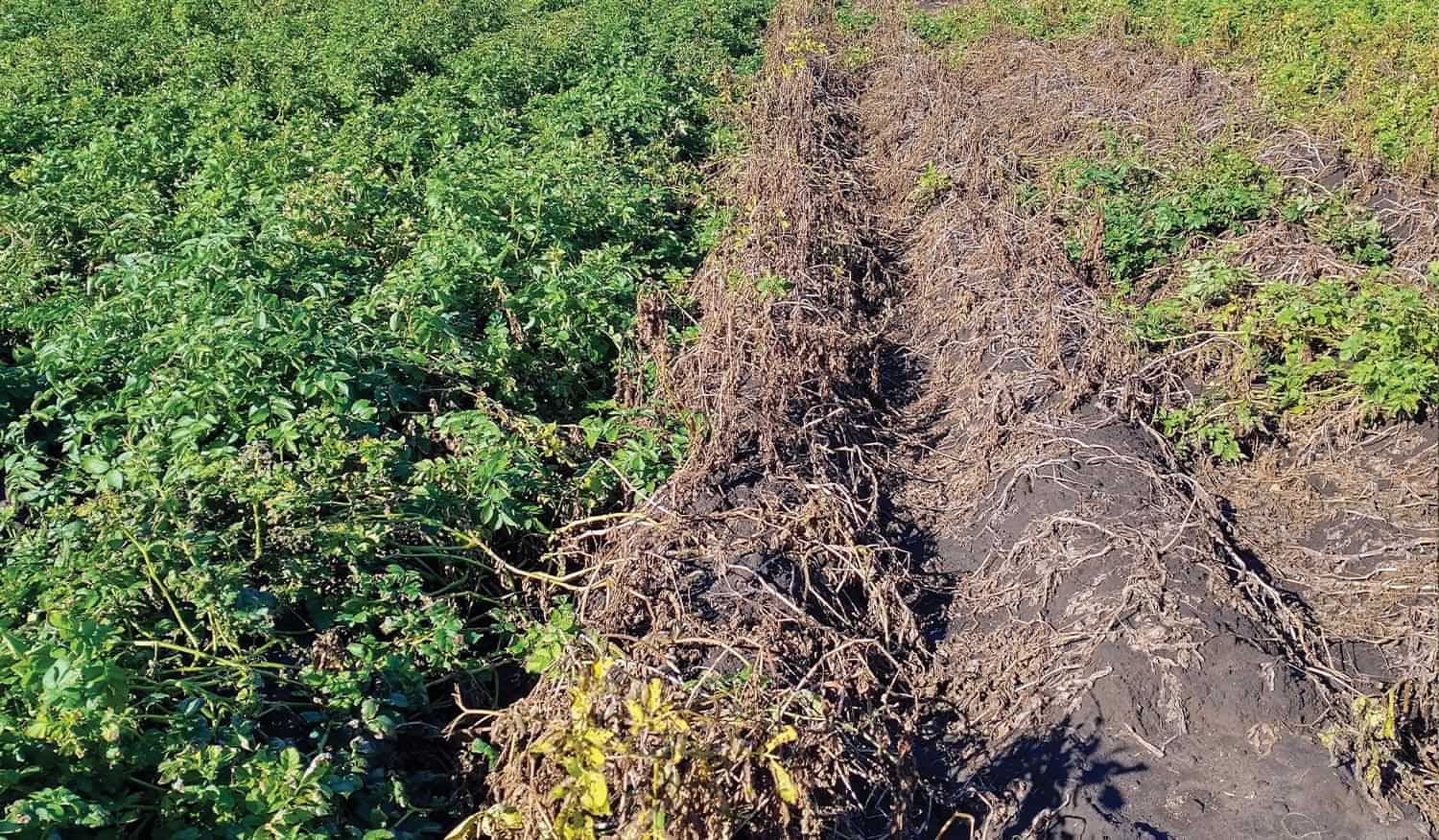
Jed D. Grow, a PhD graduate student researcher from NDSU, talked about NDSU’s current planting date research in a presentation titled “Planting Dates Effect On the Bulking Rates And Verticillium Content Of Three Russet Cultivars,” which he made at last summer’s Potato Association of America annual meeting in Missoula, MT. Grow’s presentation last summer covered research results from the first year of the study—2021—but final results from this past summer’s studies weren’t finalized by the time we went to press with this issue. Grow did offer some preliminary results, however, in updating what he and his research team discovered from the study’s first year.
– Craig Morgan, “International Harvester”

The JCB Fastrac delivers class-leading levels of comfort through an advanced hydropneumatic suspension, mid-mounted cab position and customizable operator environment and controls. Safer by design, the 4220 has more safety features than any other tractor. Safety features include all-around disc brakes for greater, consistent stopping power, full-length rigid chassis and an advanced anti-lock braking system (ABS). Your Fastrac will become your new farm office as you enjoy greater comfort with heated and ventilated seats, climate control and solar load monitoring.
The conference covers a wide range of educational and informative sessions as well as relevant industry updates. Pesticide applicator license credits for Idaho, Washington and Oregon are expected to be available for qualifying sessions. Engage with the 70 trade show vendor booths that fill the ballroom in the Pond Student Union Building, with displays highlighting agricultural products and services.
Highlights for this year’s conference include:
- FREE – Hot potato snacks provided by McCain Foods
- FREE – baked potato bar featuring Teton Russet potatoes
- Pesticide credits for qualifying conference sessions
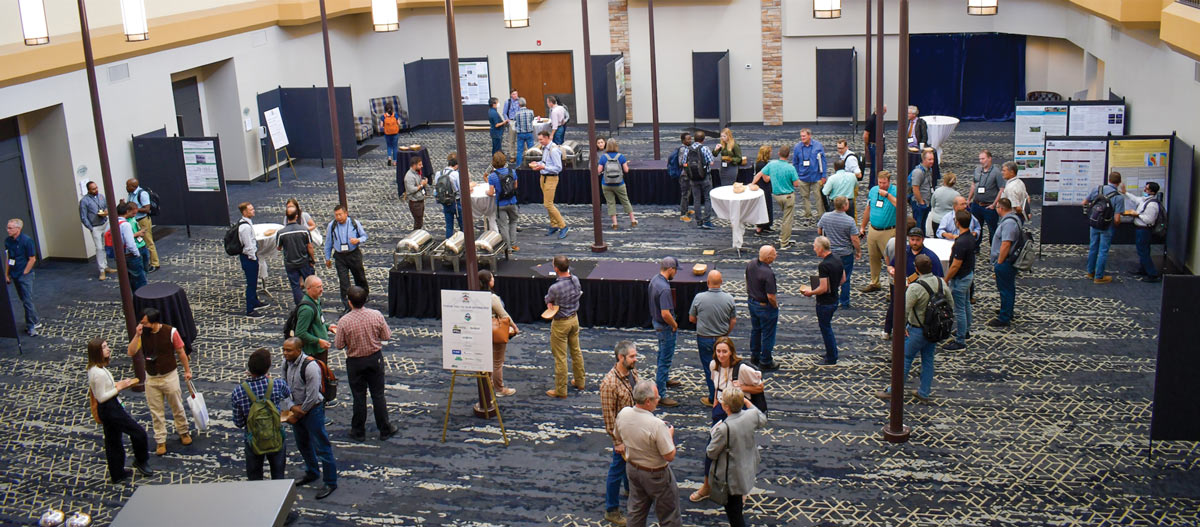

The program will feature research presentations related to potato breeding and genetics, seed certification, potato production and management, pest management, physiology, new variety releases and crop utilization and marketing. The meeting also provides networking opportunities, an auction of potato-related collectibles, chances to visit local attractions, and much more.
Become a member today and join us at the annual meeting.
How Did Your Seed Source Do in 2022?
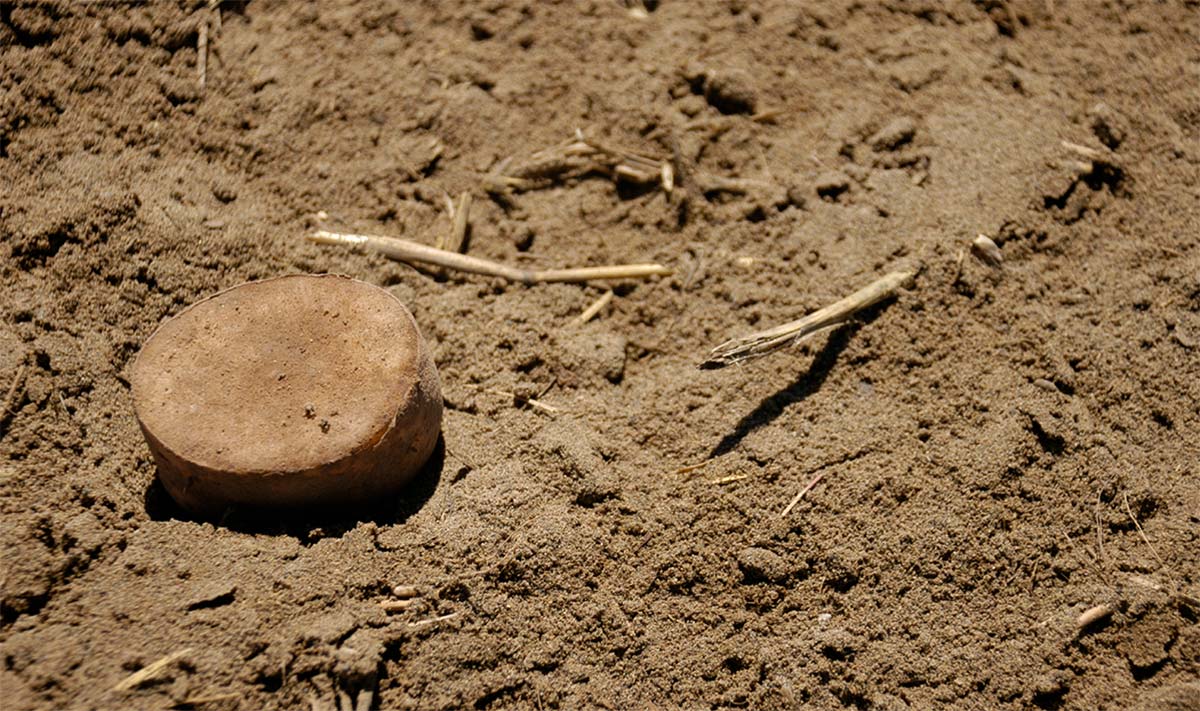
Across North America, seed potato growers and certification specialists are hard at work year-round to help ensure a clean, safe supply of high-quality seed for the potato industry. From coast to coast—and beyond, in some cases—their work pays major dividends for the entire potato supply chain. We reached out to many of the key certification programs on the 2022 seed potato crop and here’s what they reported.
Alexander B. Mkandawire
Potato Seed Certification Manager
California Crop Improvement Association
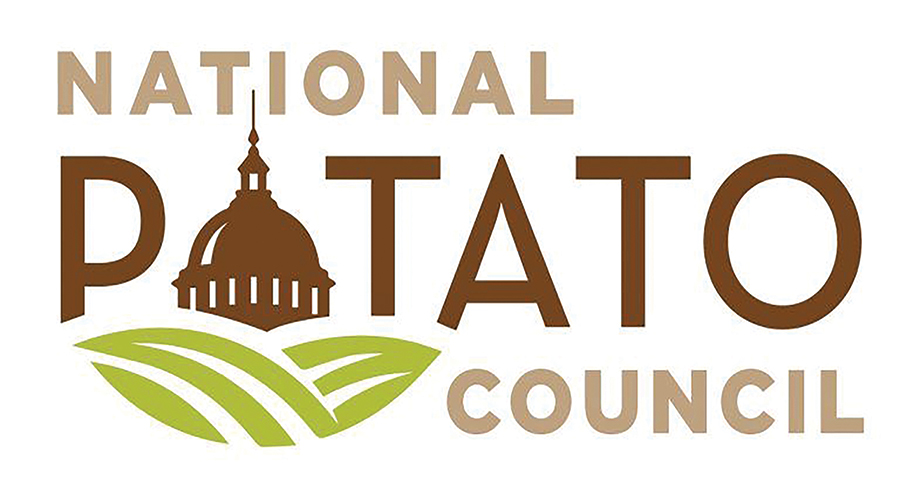
The former shield logo is replaced with a modern graphic depiction of the iconic Capitol Building emerging from green potato fields, representing the farms supported and the potato growers who direct the member-led organization. According to NPC CEO Kam Quarles, “Our goal was to refresh our brand to better reflect who we represent and what we do: Stand Up for Potatoes on Capitol Hill. The new logo will also clearly differentiate the National Potato Council from other industry organizations and better align us with national agriculture peers making an impact in D.C.”
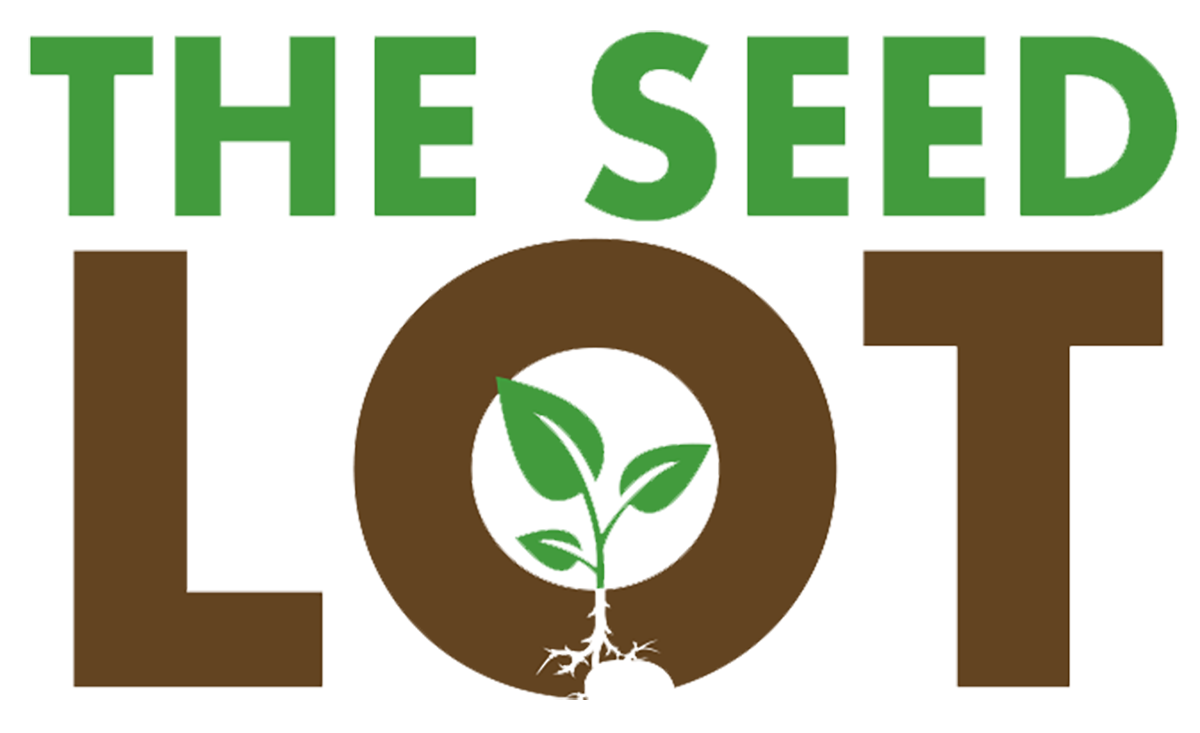
The Potato Grower Seed Lot is where you will find seed producers from Manitoba to Maine, from Montana to Michigan—all conveniently gathered in one place.
If you’re a seed grower interested in being a part of The Seed Lot, call Kevin at (208) 542-2237.
Wildfire Smoke’s Influence On Potato Crops Under Study
Two-year project collaboration between U of I, Boise State
A two-year study by Boise State University and University of Idaho probes how wildfire smoke affects potato crops and seeks to identify smoke-resilient potato varieties.
Farmers know potato crops grown during seasons of heavy, extended wildfire smoke generally have smaller yields and worse quality. Past studies have identified some smoke components, such as ozone, that could impair potato growth, but limited research has largely left the underlying chemical relationships unexplained. This work tests industry’s smoke-harm theory in controlled environments, allowing researchers to investigate the effects individual smoke compounds impart on Idaho’s flagship crop.
“Observations from industry started all of this,” Mike Thornton, a professor in U of I’s Department of Plant Sciences, said. “When we have had bad, smoky years, yields are down and processing quality is down. Our hypothesis is smoke exposure causes that.”
Hot Potato! AAFC Research Into Heat-Tolerant Potato Genes
In the classic children’s game, nobody wants to be the one left holding the “hot potato.” This also rings true for farmers, as rising global temperatures are bringing new meaning to the term. Producers know that being able to grow potatoes that can withstand heat-stress is becoming increasingly urgent. Originating from the Andes in South America, potatoes are now a staple food on tables across the globe – and with good reason. One potato with skin is equal to a cup of spinach in iron content, and has as much potassium as an average-sized banana. While the cool temperatures of the Andean highlands were ideal for potato formation, potato crops are feeling the heat in Canada, where recent summers have seen record-breaking temperatures.
Helping producers find potato varieties that are more resistant to the potential disruption to growth caused by extreme heat is critical for ensuring the sustainability and profitability of potato production in Canada, which averages 4.5 million tonnes per year.
Recognizing this need, Dr. Xiu-Qing Li, an Agriculture and Agri-Food Canada (AAFC) research scientist with the Fredericton Research and Development Centre, has been studying heat-stress in potatoes for years, leading to a number of breakthroughs in recent years. In 2018, he teamed up with the University of New Brunswick and international collaborators to examine the response to heat-stress in 55 different varieties of potato, the first large-scale study of its kind. In most of the varieties studied, heat-stress decreased leaf size, but increased leaf greenness and plant height, while severely reducing potato formation and mass. This study also identified which varieties were most heat-tolerant: Eramosa, Chieftain, AC Belmont, and Superior.
Recasting How We Communicate About Pesticides
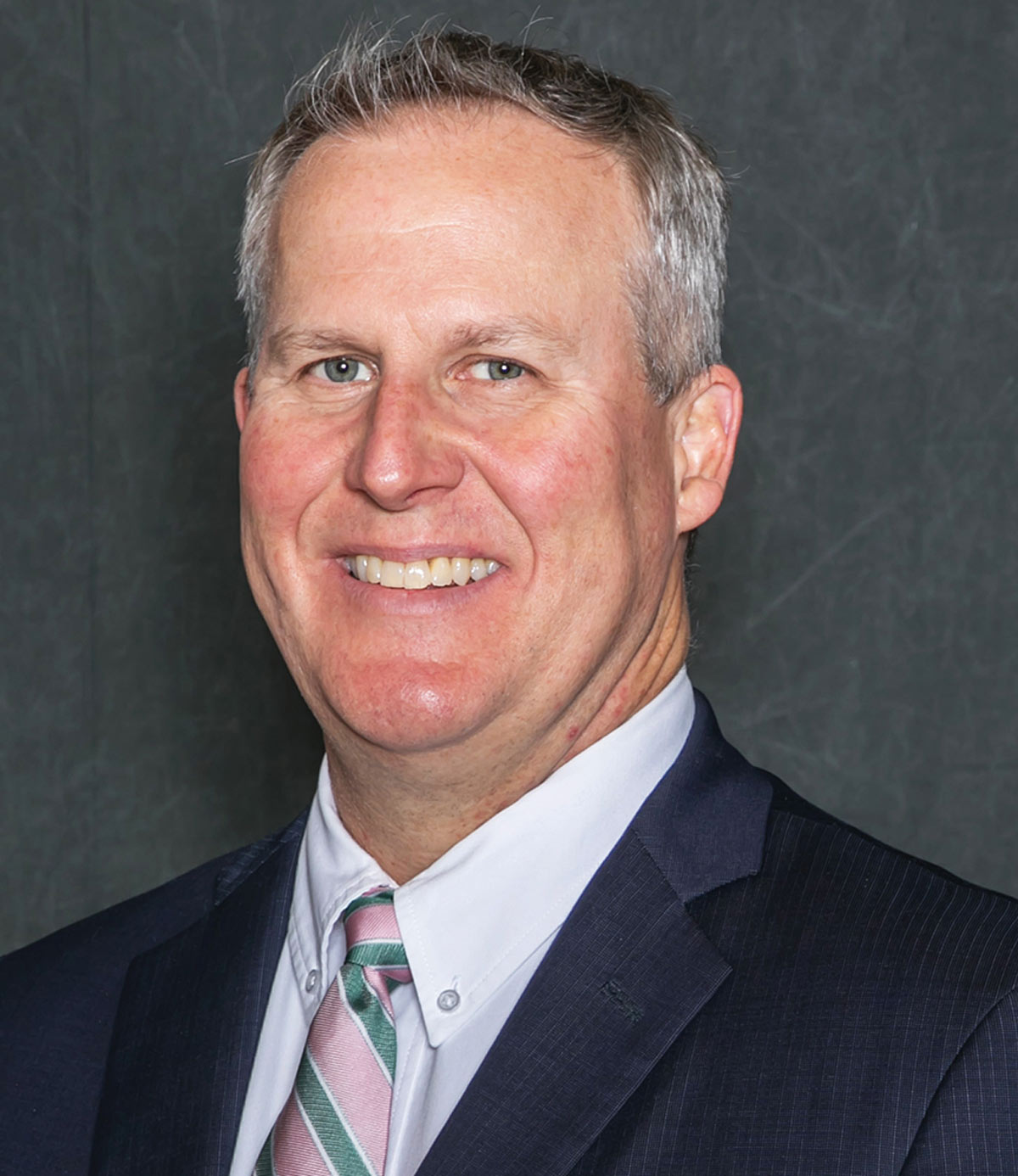
PESTICIDES! Yep! I said it! The “P” word. Don’t be aghast. It’s all right. We’re saying it again. We need to say it again because by trying to be politically correct for a quarter of a century and renaming them “crop protection products (CPPs),” the environmental activist community was able to uninterruptedly and publicly malign these chemical miracles to crops.
The name change from pesticides to CPPs coincided with the internet boom of the 1990s when the world was going online. Since only those in agriculture were using the term CPPs, whereas the public (and eco-activists) continued to use the word pesticides, internet browser searches for the word “pesticide” would primarily top-list websites that were unfavorable to pesticides, and not ag groups’ webpages that were championing the importance of “crop protection products” (not “pesticides”) to food, fiber, bioenergy and public health protection. As a result, pesticides’ societal contributions were being sparsely highlighted in cyberspace. There is a new industry movement to call pesticides “pesticides” again. The rebirth and importance of using the word “pesticides” and how to recast the public discussion of them is a campaign CropLife America (CLA)—the national association representing pesticide manufacturers—is working on. In 2019 and 2021, CLA held multiple focus groups in six U.S. cities to gauge urban and suburbanites on their knowledge and opinions of pesticides and what information resonated positively with them about pesticides. (See “Persuasive Pesticide Messaging,” Agricultural Aviation, Spring 2022.)
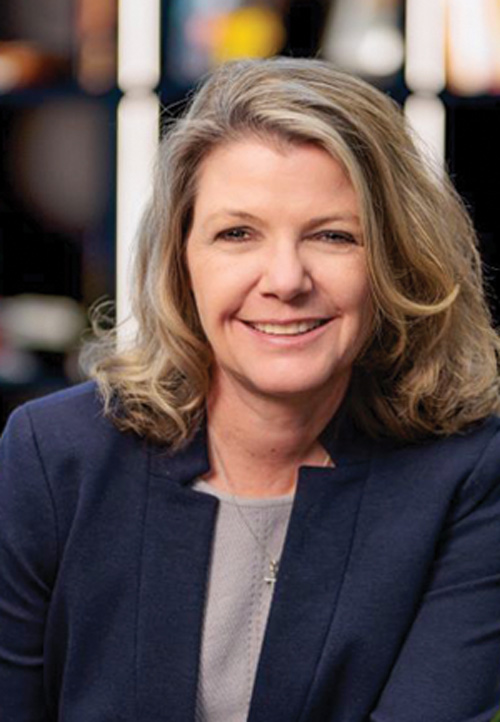
Through it all, potatoes maintained a place of prominence on menus across the U.S. According to Datassential, potatoes are one of the most consistently menued items showing up on 83 percent of menus nationwide, while the incidences have increased by 5 percent. Incidences is just a fancy word for the number of dishes on a menu that contain potatoes. This is impressive! Despite the turmoil restaurants have experienced during the pandemic, potatoes have grown in importance. Just one more indicator of how much the humble spud is beloved.
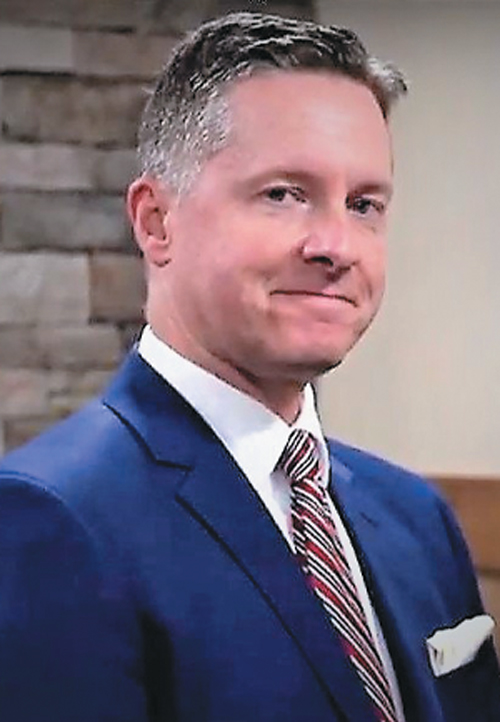
National Potato Council
By Kam Quarles, CEO
Standing Together At NPC’s Washington Summit
We hope to see you next month in D.C. as we unite as an industry to “Stand Up for Potatoes on Capitol Hill!”
Mark the dates and register to join us for the National Potato Council’s 2023 Washington Summit, Feb. 27-March 3 at the Washington Marriott at Metro Center. With a divided Congress, new members on the House and Senate Agriculture Committees, and a 2023 Farm Bill on the horizon, this year’s Summit is a can’t miss event for anyone in the industry who wants to lend their voice to our policy priorities and work together to protect the future of the potato industry.
As D.C. began returning to normal operations, the 2022 Summit was one of the first opportunities for elected officials to meet with a large constituent group like ours. During that event, attendees were joined by members of Congress who addressed their agriculture and small business priorities, and heard from potato industry attendees on their policy concerns. In attendance were Rep. Dan Newhouse (R-Wash.), Rep. Mike Simpson (R-Idaho), Rep. Frank Lucas (R-Okla.). and incoming House Agriculture Committee Chairman Rep. Glenn “GT” Thompson (R-Penn.). Additionally, during the annual Standing Up for Potatoes on Capitol Hill reception, attendees were joined by more than 16 members of Congress including Sen. John Boozman (R-Ark.) and long-time potato industry champion Sen. Susan Collins (R-Maine).
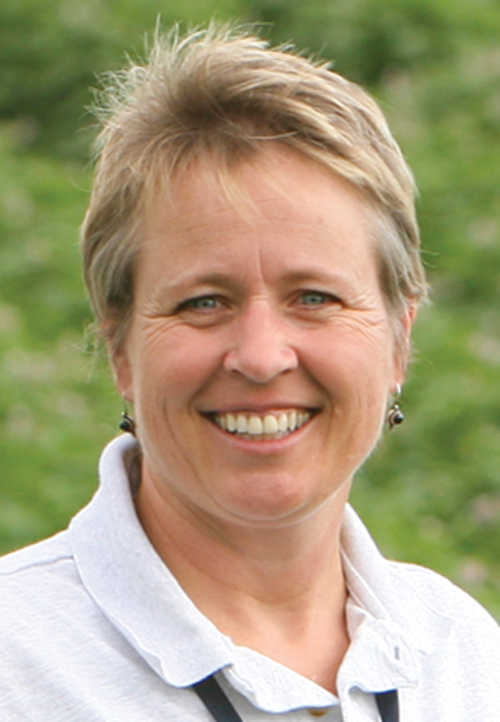
“Would you like fries with that?” While that is a welcome prompt from a friendly server at your local quick serve restaurant, it also speaks to the direct competition for labor that we experience throughout the potato industry, and extends to our lab at Montana State University.
This summer, signs outside fast food restaurants were advertising $18-20/hour. That has recently been bumped to $21-23/hour, in some cases, with signing bonuses. Our seed potato certification program and seed potato farmers rely on a significant amount of seasonal short-term labor, and we all have been struggling to attract enough workers. For the seed potato certification program, we seek to hire 15-20 people to collect leaf samples and additional staff to process the leaves for disease detection in the lab. At the university, we have the luxury of a large pool of students, and can provide them the opportunity to obtain laboratory skills that may be relevant to their chosen profession.
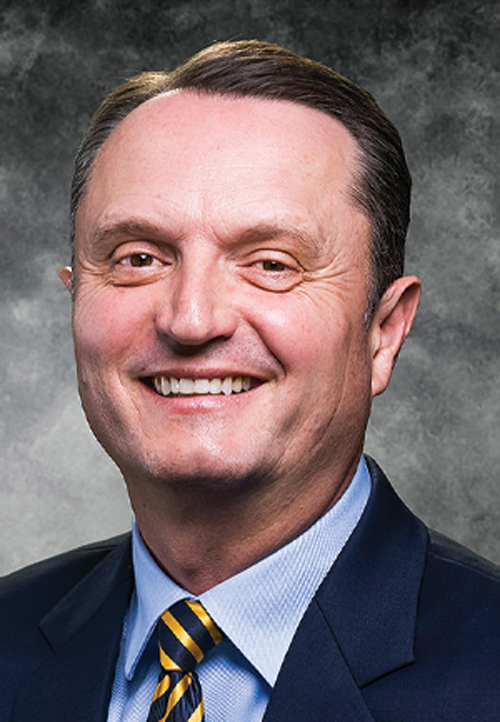
New Hire, Promotions At The Idaho Potato Commission
Sam Eaton has been hired as the new vice president of Legal and Government Affairs. The former Director of Policy and Counsel for Governor Brad Little of Idaho will primarily manage the IPC’s government affairs at the federal, state and local levels, direct the IPC’s trademark licensing, and provide legal and regulatory advice to the commission.
Sam’s experience in working with legislative and executive officials, as well as Idaho’s biggest organizations, including commodity groups, has already proven to be extremely beneficial in the few months he’s been on board. I have no doubt Sam’s expertise and enthusiasm will greatly contribute to the IPC’s ongoing commitment to strengthening the Idaho potato brand and building a strong and unified industry.
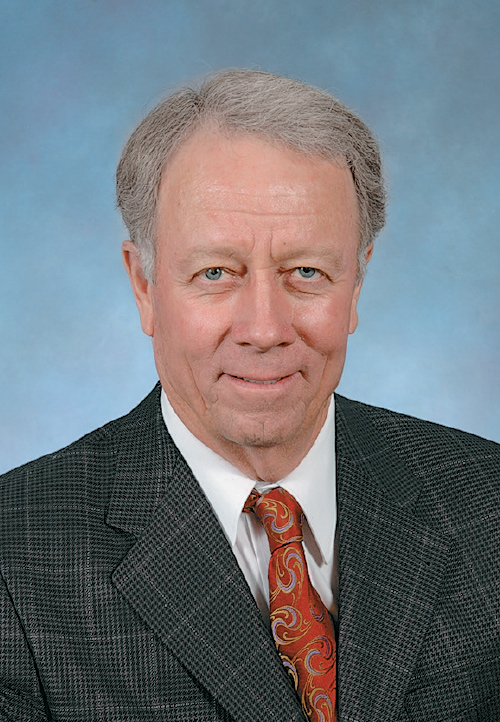
Einstein Nails It Once Again
Albert Einstein: “The world as we have created it is a process of our thinking. It cannot be changed without changing our thinking.”
How empowering it is to learn that we can change our circumstance by changing our thinking!
When Wilbur and Orville Wright chose to investigate and thereby understand the physics of heavier-than-air flight, correct thinking led them along a process of elimination until they could soar through the air like a bird. Uncounted prior attempts by men who did not think correctly led to comic, even disastrous results. That did not happen with Wilbur and Orville. Their thinking was so solid, so logical, that success was inevitable. They knew that a kite soars in the wind.

